Agriculture & Environment
SDSN Uganda Network Launched at Mak
Published
3 years agoon
By
Jane Anyango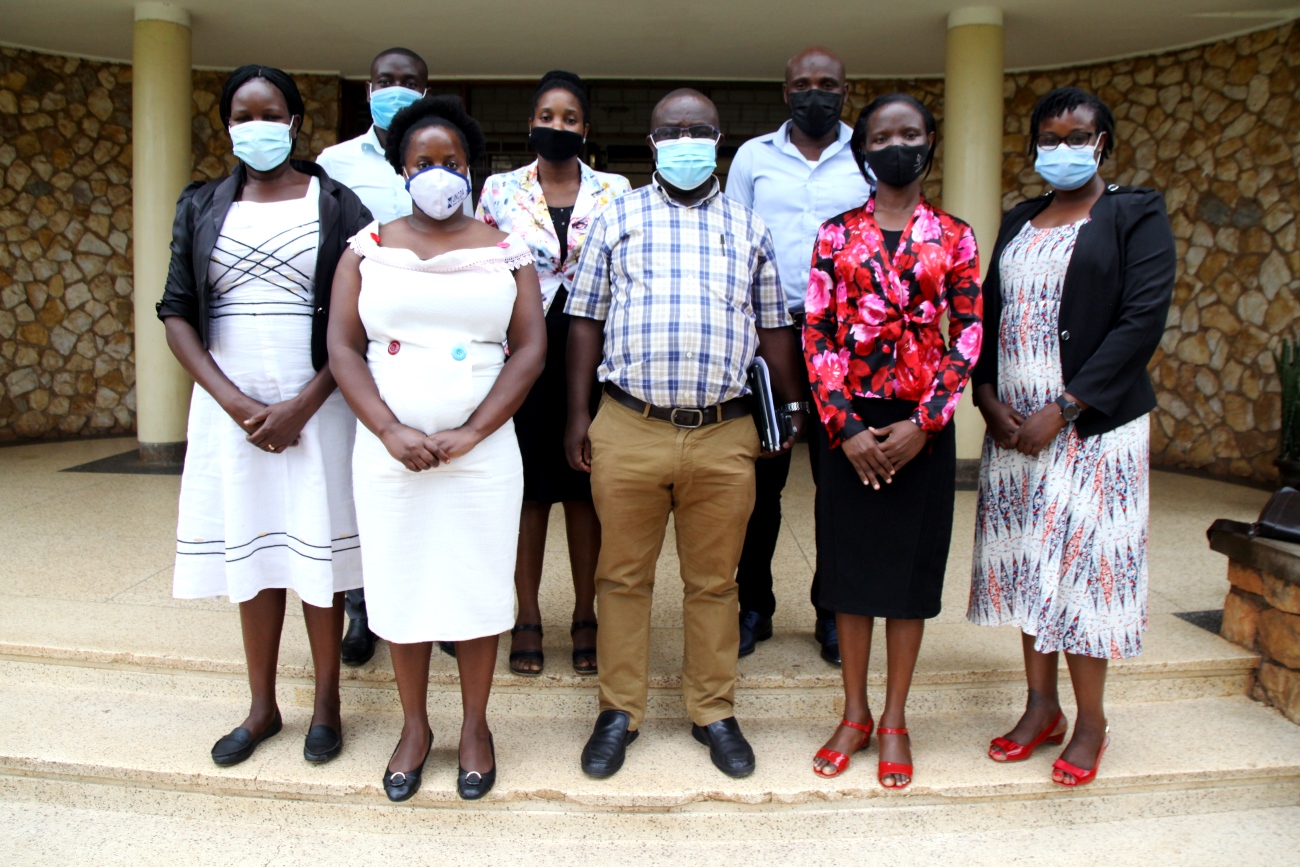
The Sustainable Development Solutions Network (SDSN) Uganda Network has been launched at Makerere University College of Agricultural and Environmental Sciences (CAES). The Network was launched virtually on 21st April, 2021 under the theme, “Unlocking the potential of Universities and other non-state actors to foster achievement of SDGs”.
The network is hosted by the Makerere University Centre for Climate Change Research and Innovations (MUCCRI) coordinated by Dr. Revocatus Twinomuhangi from the Department of Geography, Geo informatics and Climatic Sciences.
The workshop held online was attended by over 60 participants comprising state and non-state actors (representatives of government sectors, members of the academia, the private sector, civil society organizations and international development partners) among others.
The e-conference was graced by the President UN SDSN Prof. Jeffrey Sachs who delivered the keynote address, the Vice President SDSN Maria Cortes Puch, the Senior Technical Advisor SDGs Secretariat Office of the Prime Minister (OPM), Dr. Albert Byamugisha and the Country Director Cities Alliance Uganda Samuel Mabala .
The conference was also attended by Makerere University’s Vice Chancellor Prof. Barnabas Nawangwe who officially closed the ceremony, the Principal CAES represented by his deputy Assoc. Prof. Gorettie Nabanoga who officially welcomed and opened the conference and senior members of staff including the network champion and Makerere University’s long serving Professor Elly N. Sabiiti.
Other dignitaries included representatives from Mbarara University of Science and Technology, Gulu University, Ndejje University, Kyambogo University and the youth wing of the SDSN.
In his keynote address, Prof. Jeffrey Sachs thanked Makerere University leadership for hosting the network and senior government officials represented by the Office of the Prime Minister for the emphasis on how the SDGs were being integrated into the country’s development and vision.
Prof. Jeffrey Sachs is a University Professor and Director of the Center for Sustainable Development at Columbia University. He is a commissioner of the UN Broadband Commission for Development. Sachs has been advisor to three United Nations Secretaries-General, and currently serves as an SDG Advocate under Secretary- General António Guterres. Sachs was twice named among Time magazine’s 100 most influential world leaders and was ranked by The Economist among the top three most influential living economists.
Prof. Jeffrey highlights universal access to education, digital services, electrification as Uganda’s major development challenges casting doubt on oil and gas prospects.
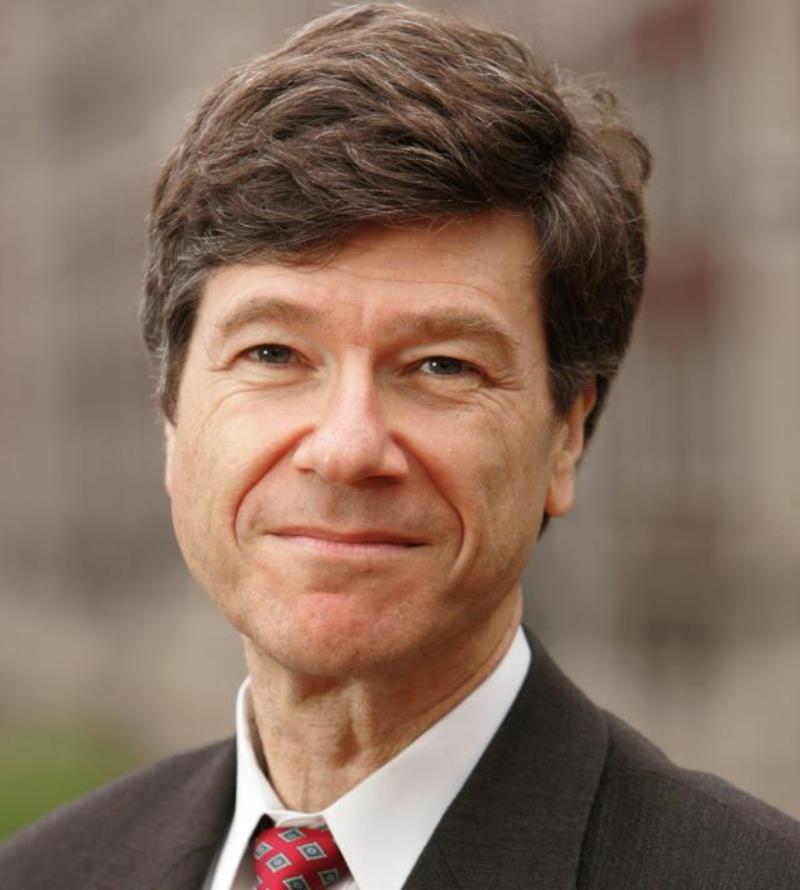
Prof. Jeffrey pledged that the network was ready to work with and help government of Uganda to work on the development challenges being faced to accelerate progress in achieving the SDGs.
“Uganda as country faces many development challenges and opportunities and we would like to brainstorm with you, strategies with you in government and academic sector and in the specific communities and find ways to accelerate the progress”. the President stated
Prof. Jeffrey explained that SDGS are an important reference point to understand where the big gaps in development occur and therefore directs where the mobilization of energy and resources, creativity and strategy should be applied.
Prof. Jeffrey told participants that looking at the situation in Uganda, there clearly three important development priorities that the network would like Uganda to address. These he said include ;1)Universal access to quality, education; 2)universal access to digital wireless services, applications and tools;3)Universal access to electricity and/or renewable energy sources.
He said universal access to quality education is the single most important aspect of life that can lead to the transformation of live hoods and the different sectors of the economy.
The other most important aspect for government according to Prof. Jeff is to expand access to digital services on grounds that the use of broadband is limited by internet levels; People do not have access to digital tools or internet connectivity.
“The digital technologies are the most important tool that the country like Uganda has to accelerate achievement of the SDGs. Imagine in Uganda if every person had access to quality internet then, we could expand online education, telemedicine, government services, technical training, e-payment services and we could expand environmental management and supervision, .
So I believe that in addition to universal education, we should be aiming at very rapidly for universal digital services including appliances and tools that are needed to use the services”, Prof. Jeff advised.
Noting that there are significant financial constraints, Prof. Jeff expressed the need to think about how development financing can help the Government of Uganda to mobilize resources, and how the private sector, international companies can help to mobilize investments needed to achieve these two goals.
“If we could achieve universal access to Digital services, it will be easier to achieve SDG3 which is universal health coverage because there is twenty years of experience of using telemedicine as a powerful way to expand access to health care.
Now, it is possible to dial patients from a distance, to read x-rays from a distance , to manage symptoms from a distance and if we use the digital platform, we can tremendously expend medicine and health care as well”, The UN SDSN President justified.
The third biggest development challenge for Uganda according to Prof. Jeffrey Sash is that of electrification because electricity is needed in the villages and in cities in order to power the digital networks and appliances.
“And still far too few households and villages have access to electricity services and this raises a question of renewable energy in Uganda. There is a tremendous potential for solar power as an instrument of mass electrification and micro grids and mini grid and even national grid approach through solar power.
This scenario I believe also with financing can make a huge big difference. Households can pay for energy services but not the upfront investment costs for solar panels and wiring and system but can pay overtime to cover the cost of electricity services”, the keynote speaker advised.
He reported that SDSN has developed such micro grid approaches in some parts of Uganda to show that it is possible to have commercial enterprises using a micro grid approach which should be tremendously expanded.
Prof. Jeffrey further raised questions about energy strategy in Uganda, aware that there are major plans and high prospects on the development of the oil sector in Uganda.
Jeffrey said he was rather doubtful about this because it seems to be running against the global trend which is to end the use of oil, coal and natural gas not to expand use of oil, coal and natural gas. He added that this is something that can be analyzed and studied by members of the academia and other stakeholders because it is important for other reasons as well.
“I know there are high hopes for developing Uganda as an oil exporting country but, I am a little skeptical and I have to say this with friends because the expenses will be very high. Petroleum is very waxy and expensive to transmit.
The pipeline goes to many ecological-sensitive regions and villages. The dangers of oil spills are very high and it would be good for Uganda to look ahead to 20 years. I am raising this because I believe in renewable energy and distributed solar power much more than the big oil and gas pipe lines especially because the world is moving to electric vehicles and renewable energy. So this project to me seems to be running against the direction of the global market and the country may become stranded in the future in the development opportunity”, The professor explained.
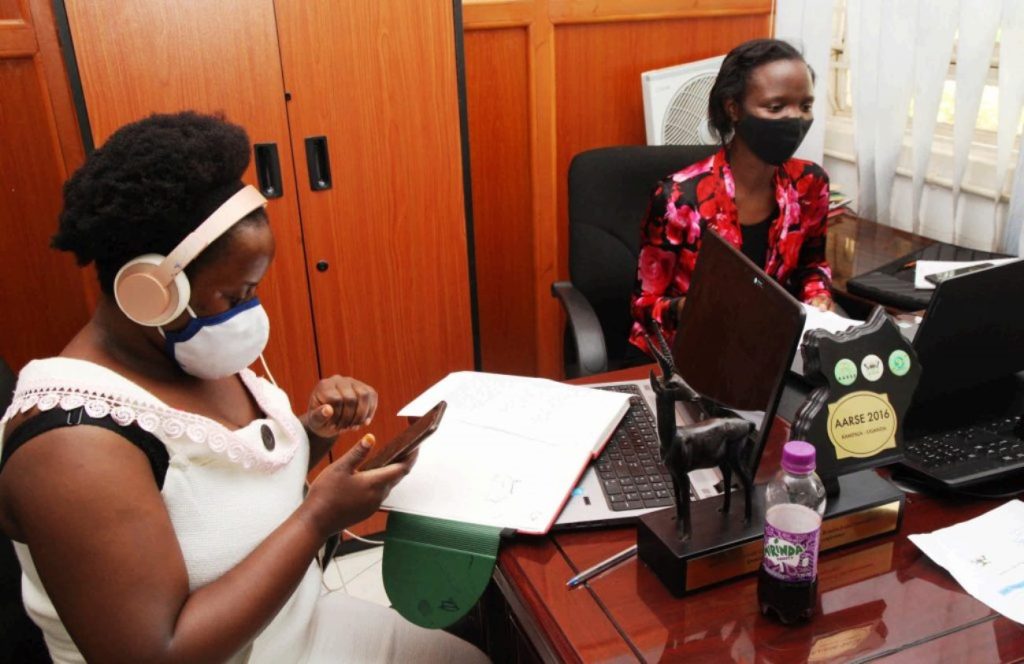
Prof. Jeff described Uganda as an absolutely beautiful country with wonderful ecosystems and biodiversity saying, the UN SDSN treasures the beauty of Uganda and entire ecosystem and the rich biodiversity which is a good resource for the country and a great resource for tourism.
He however said, this natural endowments need to be taken with very good and great care. He reasoned that all the ecosystem of Uganda is under a lot of pressure and this is the major focus of SDG 14 and 15- The stewardship and protection of the ecosystem.
“Uganda’s population has been growing very fast at about now 45 million people compared to 5 million in 1950, an increase of almost 10 times. As the population continues to grow rapidly, the pressure on ecosystem continues to be great and these projects like the Oil and gas pipelines are also a threat to the ecosystem.
Uganda depends on help and cultivation of its remarkable beautiful ecosystems and its endangered species. So, I would hope that the SDGS also will be an important opportunity to redouble the protection and support of Uganda’s ecosystem and to focus on the kinds of projects that preserve the beauty of your country to avoid ecological dangers”. Prof. Jeffrey explained
Demographically, Prof. Jeffrey observed that there will be a shift from the rural areas increasingly to the urban areas and this poses more challenges because of the costs involved like infrastructure, sanitation, transport, power system, the health care system and education are all major costs meaning, the whole transformation embedded in SDG 11 are also a huge challenge.
He said the biggest problem with everything talked about is the requirement of a lot of investments whether in education, health care, digital, energy etc costs money, the money beyond what is available in the national budget.
“ I am very much aware of that and I believe that we should hold strong to the goals and your friends and partners in the UN, international agencies, AfDB , UNCA and other partners should be working together with you to identify how to close financing gap rather than saying we will be without electricity and schools.
I hope Uganda says, no, we must have schools, we must have rural electrification and it is your job as partners to identify financing gaps to help us to do so and this is the spirit and purpose of the SDGs to mobilize partners to get this done”, Prof. Jeffrey advised.
He expressed excitement over the launch of SDSN Uganda and gratified Makerere University for taking up this great role and pledged to work with the university and government to help solve these problems with the speed and urgency they deserve to give Ugandans the future they need and deserve.
The Vice President for SDSN Networks Maria Cortes Puch on Global SDSN programs
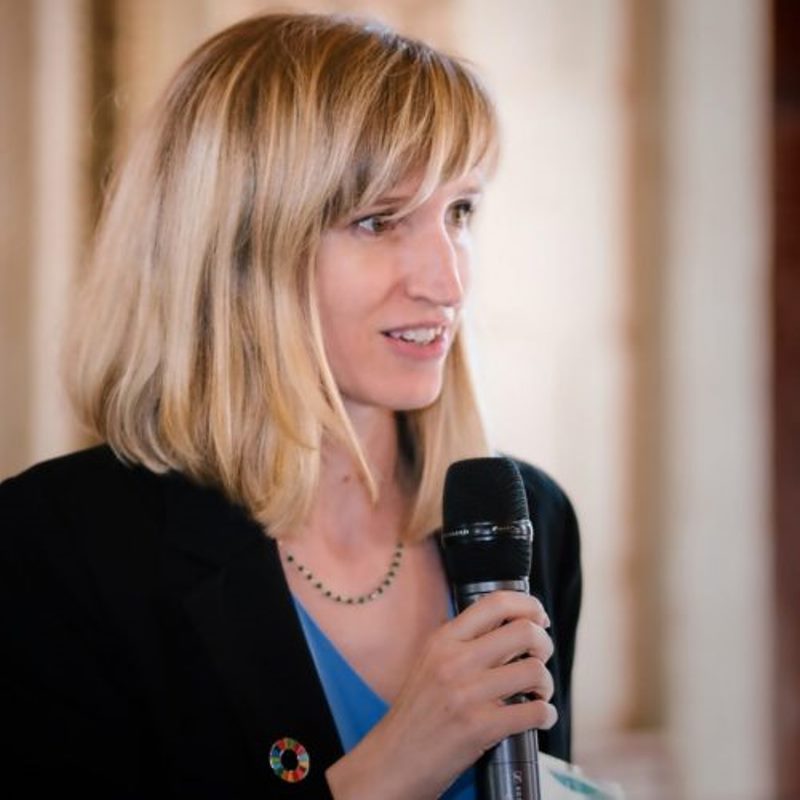
The Vice President for SDSN Networks Maria Cortes Puch thanked Makerere University for hosting the network and the efforts put in to organize the launch.
“We appreciate the great work that Makerere has been doing in the past years. SDSN Uganda was scheduled for a launch last year but the plan was cancelled due to the COVID-19. In the meantime, SDSN Uganda has managed to set up a number of priorities to work on which takes some years.
SDSN Uganda has already established a collaborative relationship with government through the OPM and has advised the UN resident coordinator office and UNDP on defining the UN sustainable development cooperation framework in Uganda for the next four years. We can’t call this network a baby anymore, it is already a standing up child and we are really eager to see what comes next”, Maria Cortes said.
She said SDSN was launched in 2012 under the auspices of the UN Secretary General to mobilize scientific and technical expertise from academia, civil society, and the private sector to be part of the debate to diagnose development challenges in the attainment of the Sustainable Development Goals (SDGs) and to come up with complex solutions that would incorporate different sections of society.
“Since then, SDSN has been mobilizing academia around the world. We currently have more than 1400 member institutions around the world of which about 75% are universities and the rest are research centers, think tanks or knowledge producing NGOs. We organize our members through our national and regional networks hosted by one or two universities that convene universities in that country in support of the SDGs” She said.
She explained that the SDSN has four priorities:-One is to localize SDGS, by working and bringing together governments, different sectors ,national statistical offices, unions, NGOs, civil society, private sector and universities in workshops to discuss different strategies for SDGS, what the SDGs means for a country or region, challenges unique to individual countries and key opportunities gathered to assess whether the right progress is being made in the achievement of the SDGs.
SDSN also focuses on high quality education for sustainable development for instance a number of programmes on sustainable development, executive training with the private sector including thinking through how the curriculum is developed to ensure that everyone coming out university knows the basic principles of sustainable development irrespective of specialties.
The Vice President also said SDSN also works on sustainable solution initiatives with private sector and different levels of government and are practical solutions that are very specific and unique problems. The networks she said conduct long term path ways for sustainable development, a very technical exercises modelling whether or not the goals are possible to achieve with specific avenues and trajectories to achieve those goals in the country.
She added that sustainable solutions initiative is a technical exercise in a highly interactive process to make sure that the model puts into consideration the realities of the country that ensures no vulnerable group is left behind which creates census in society
“We have 41 networks now that cover 120 different countries around the world. One of the great thing about our networks is that they help one another. So the SDSN Uganda will be working closely with SDSN Canada and SDSN Japan and will be learning from each other and sharing projects and opportunities.”, she said.
She reported that in September 2020, a new guide for accelerating education for SDSN in universities was launched. Currently, she said an open call for case studies is open and in case any university is using innovative method of teaching SDGs or mainstreaming SDGs, SDSN would want to hear about it by visiting the SDSN website and submitting the Case study.
Uganda has made progress on all SDGs, is more than 50% of the way towards achieving SDGs by 2030, ranked 18th position out of 52 African countries with overall score of 58.8
Senior Technical Advisor SDGs Secretariat, office of the Prime Minister Uganda Dr. Albert Byamugisha
Senior Technical Advisor SDGs Secretariat, Office of the Prime Minister Uganda Dr. Albert Byamugisha thanked the organizers for inviting the Office of the Prime Minister to participate and speak at the launch of the SDSN Network Uganda.
While speaking on the Snapshot of Uganda’s journey, Sustainable Development coordination framework, and the integration of SDGs in Uganda’s development and vision process, Dr. Byamugisha said, Uganda was has made progress on all SDGs.
Dr. Byamugisha said the SDGs were endorsed in 2015 and adopted in 2016 and during that time, Uganda was the front runner because it helped the presidency of the General assembly at the time, and Uganda prepared the first national voluntary report 2016 which indicated that out of the 169 targets, Uganda had covered 70% in the NDP II.
He said, Uganda has a dedicated Minister in charge of SDGs and recently last year, Uganda prepared the second voluntary national report. Organizationally, he said government has developed a coordination framework to implement SDGs and a roadmap to operationalize SDGS developed in 2018 cooperating with different stakeholders to make sure that no one is left behind. Dr. Byamugisha reported that recently an MoU was signed with CSOs. “ In 2016 we developed a frame work which is fully functional in the office of the Prime Minister which was sent to the Minister of General Duties who is in charge of SDGs.
The SDG secretariat has been established with full support of development partners especially the Subsystem to support the coordination function and all level technical groups functioning progressively to address different aspects of the SDGs.
The framework has been operationalize through the roadmap which was established in 2018 and aligned with NDP II and now that of NDP III.”, Dr Byamugisha explained.
Dr. Byamugisha said there is a national coordination framework which is used in the implementation of SDGs. The first one is the policy coordination committee, chaired by the Prime Minister and members include cabinet ministers, heads of cooperation’s and agencies. Then, the implementation steering committee chaired by the head of public service and membership include all permanent secretaries, heads of missions, cooperation and agencies.
The other coordination framework according to Dr. Byamugisha is the national SDG task force chaired by the permanent secretary OPM and attended by chairpersons of the five technical working groups namely monitoring evaluation and reporting on SDGs chaired by the OPM, planning and administration chaired by national planning authority, resource and resource mobilization technical working group chaired by Minister of finance , data aspects chaired by Uganda Bureau of statistics and communication and mobilization of technical working groups to support development goals
“SDSN was looking for collaboration with SDG Secretariat OPM and I can tell you right away that you are most welcome and you will be participating in those working groups. We have the Minister for SDGs, with the secretariat with roles and responsibilities but most importantly steering the coordination of SDGs”, he said.
Dr. Byamugisha explained that the national planning frameworks are very accommodative of the 2030 agenda and the government of Uganda is well positioned to achieve its ambition to achieve the 2040 vision and establish a planning framework which is also to deliver national development plans.
He stated that Uganda has a National Development Plan for five years which promises to increase the average household incomes and improve quality of life and effectively deliver the national vision.
The NPDIII according to Dr. Byamugisha in part emphasizes the need to identify and utilize and integrate innovative financing options with the public and private sector and also identify development opportunities which include advancing mechanisms for fully aligning a planned budget, reporting frameworks and strengthen public investment management.
He said, Government of Uganda has demonstrated commitment to align financing to development citing that government issued the certificate of compliance gauging the level of alignment to the level of the budget of the Sustainable plans and so far, there has been an improvement from 54%, 60% in 2017/2018 while in 2018/19 government had issued the gender and equity compliance certificate to mainstream as a pre-condition for budget appropriation.
Dr. Byamugisha informed participants that Government has commenced implementation of a program based budgeting and had a comprehensive public management reform strategy from 2018-2023 which was developed to enhance resource mobilization including planning and public investment management.
He also explained that they were able to seal partnerships with the UN system to develop and implement integrated financing framework for strengthening a complementary, independent and a mutually financing mechanism.
Dr. Byamugisha stressed that Government continues to build evidence to guide planning and, with support from UNDP, undertook an assessment of institutional gaps in SDG implementation and also took analytical work on specific SDGs on zero hunger, peace and justice on SDG16 and 11 to resume planning and review SDG 2.
He further said, they have developed an integrated SDG Model for Uganda and through the model, there are three categories of interventions and SDG accelerators which include environment, governance and industry.
Dr. Byamugisha was happy to note that in SDSN was focusing on environment and climate change and already the they government has as one of the key accelerator.
He explained that Government together with stakeholders and partners have initiated strategies and actions of engagement and implementation such as integrating SDGs into the national scientific and statistical framework , integration of SDGs into the M and E Strategy, found a coalition of a youth initiative with a section of the youth at the secretariat.
According to Dr. Byamugisha, government has formed a youth coalition expecting to have one million youth for one million solutions, and gone ahead to the localization of SDGs into district and local government plans and conducting local reviews in local governments .
He said they have started working towards engagement of the private sector by establishing private sector platform. On 4th may 2021, Dr. Byamugisha said, the Prime Minister will be launching the private sector platform and Makerere University will be invited.
Dr. Byamugisha reported that they have embarked on popularization of SDGs with so many media campaigns and production of information education communication materials.
“Tracking SDGs through Uganda national voluntary report was done in 2020 where Uganda participated in a high level UN political forum in July 2020 and this was the Minister delivering Uganda’s report to the UN and, overall, Uganda’s SDG progress according to SDSN, is more than 50% of the way towards achieving SDGs by 2030 .
In the 52 African countries Uganda ranked 18th position with overall score of 58.8 and based on the voluntary national report 2020, Uganda had made good progress on all SDGs with several policies and strategies to facilitate the SDG implementation and key of them are social protection programmes for women,, youth and elderly, youth and job creation and empowerment, the establishment of Universal Primary Education and secondary education, gender equality and women empowerment among others”, Dr. Byamugisha reported.
Mak Vice Chancellor Prof. Barnabas Nawangwe decries the declining number of children joining university, the increasing population and high rate of urbanization
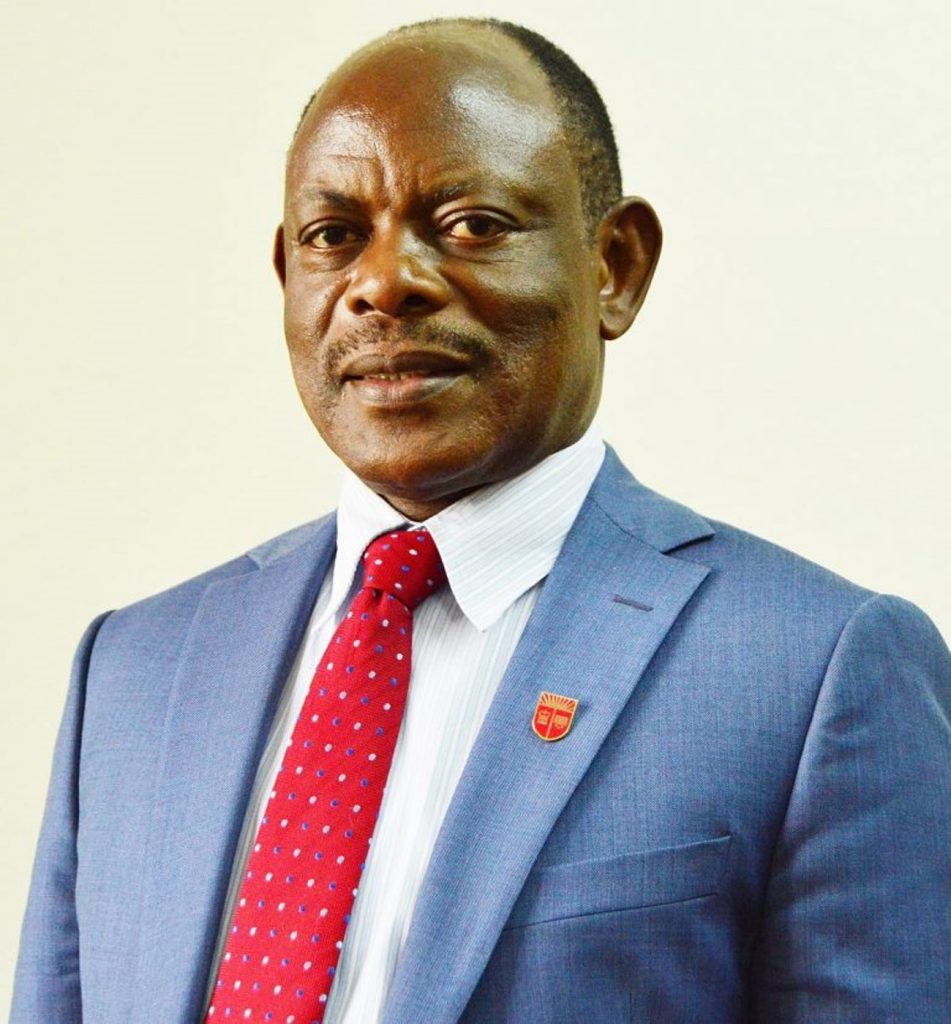
The Vice Chancellor Makerere University Prof. Barnabas Nawangwe thanked the CAES team particularly MUCCRI leadership for organizing the conference. He also appreciated Prof. Jeff Sash for gracing the occasion.
Prof. Nawangwe congratulated the SDSN group at Makerere University, the Uganda chapter, the Office of the Prime Minister (OPM), Kampala Capital City Authority (KCCA) and other partners for working with Makerere University on issues of Sustainable Development Goals (SDGs).
The Vice chancellor said Makerere University has a new strategic Plan (2020-2030) and everything being done under this strategic plan is supposed to practically address the SDGs with a core effort of providing quality education and research and therefore addressing SDG4.
“As a country and university we have a big task. We must find out why we have such a huge exodus of children both at primary and secondary level. The number of children qualifying to join the university has been declining in the last three years. That is contradictory because our population is just skyrocketing and at the same time the number of children who qualify to join the university is decreasing. It is a big challenge and as Makerere University, we must take every necessary effort to address this issue.” The Vice Chancellor decried.
Prof. Nawangwe said with the increasing population, the country has two major issues to deal with. The first issue is food security with the question of how the increasing population is going to be fed.
The second issue according to the Vice Chancellor is the high rate of urbanization. Prof. Nawangwe noted that Uganda was a very low urbanizing country for many years but this has changed. He explained that urbanization rate is putting pressure on soils that will affect the country’s capacity to produce food and the provision of good facilities for good life in the cities. Otherwise, he said, the country will end up with huge slums with no resources and poor services which must be addressed by all.
He reported that the university has many different fields of knowledge addressing different SDGs and that everybody has a role to play.
The Vice Chancellor pledged that the university will rise up to the challenge and take the leadership in ensuring the attainment of the SDGs.
CAES Principal’s opening remarks and the role of MUCCRI in promoting SDGs
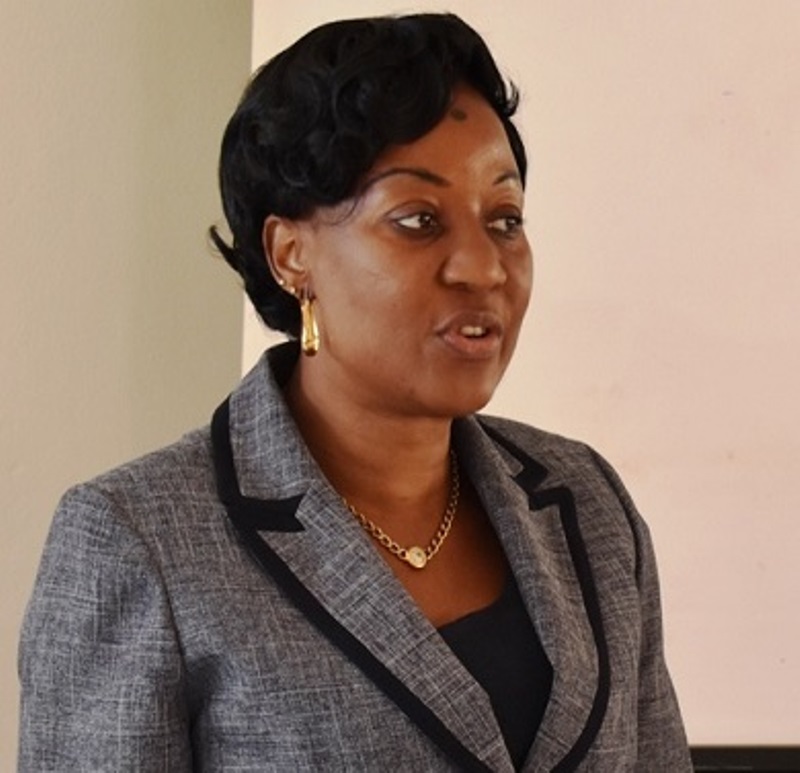
The Principal College of Agricultural and Environmental Sciences (CAES) represented by his deputy Assoc. Prof. Gorettie Nabanoga welcome participants to the launch of the Sustainable Development Solutions (SDSN) Uganda National network organized by the global SDSN and SDSN Uganda in collaboration with CAES and Makerere University Centre for Climate Change Research and Innovations (MUCCRI).
In a special way, the Deputy Principal welcomed and equally thanked the global UN SDSN for choosing Makerere University to host the SDSN Uganda National network and for collaborating with the national network to organise this launch.
Dr. Nabanoga saluted the CAES staff who championed the crusade for the university to join the SDSN network following the UN call in July 2017 and conveyed special gratitude to Makerere University Management for the buy-in and support to this initiative.
She reported that SDSN Uganda’s secretariat is hosted at the Makerere University Centre for Climate Change Research and Innovations (MUCCRI), a semi-autonomous unit in the CAES that was launched in 2013 to enhance climate change knowledge generation and dissemination. The Centre engages in Training, Research and Policy Interventions.
Through MUCCRI, Dr. Nabanoga said, the University brings together researchers and scientists from within and outside Makerere University, government officials, civil society, and private sector actors to collaboratively and locally address climate change, share information, and problem solve on adaptation technologies and research.
“We are also using MUCCRI as a vehicle to improve and support undergraduate, graduate, diploma, and postgraduate education in climate science, meteorology, climate change adaptation and mitigation. The Centre therefore contributes greatly to the achievement of SDG 13 on climate action.
I am happy to note that the theme of the launch event, “Unlocking the potential of Universities and other non-state actors to foster achievement of SDGs”, is in line with the global development and climate change agendas agreed upon by world leaders to foster sustainable development and build resilient societies”, the deputy principal said.
She reported that SDSN Uganda will focus on six themes: agriculture and food security, improve health, natural resources and ecosystems, renewable energy and efficiency, sustainable cities, and climate change, with gender equality as a cross cutting theme.
She said the university has a fully-fledged College of Agricultural and Environmental Sciences, a College of Health Sciences, a College of Engineering and Technology, a School of Economics, a School of Women and Gender Studies, and we are looking forward to partnering with institutions of the same agenda to promote gender-responsiveness achievement of SDG targets under these themes through training, research and innovations, community engagement, capacity building and working with Government on SDGs – (OPM SDGs Secretariat).
Dr. Nabanoga expressed hope that through the SDSN forum, participant will explore how to unlock sustainable agro-industrialization to respond to the pressing socio-economic development priorities of food security, wealth and job creation and expansion of macro-economic growth through country owned processes.
On behalf of the college management the Deputy Principal reaffirmed that SDSN Uganda will continue bringing together SDSN members in the country to identify, develop and implement transformative solutions for sustainable development.
In addition Dr. Nabanoga pledged that SDSN Ugnda network shall mobilize universities, research and knowledge centers, civil society, private sector, and special interest groups to promote the achievement of 2030 sustainable development agenda and the Paris Agreement on climate change.
SDSN Uganda Network Manager Dr. Revocatus Twinomuhangi speaks on the network objectives and structure
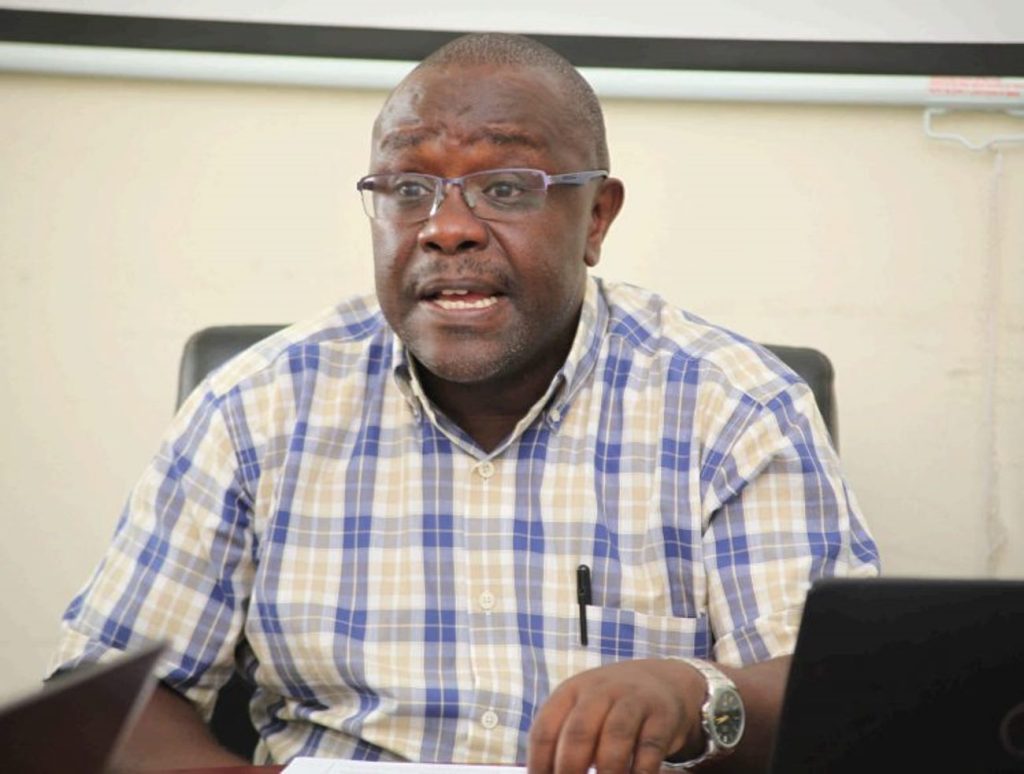
The Coordinator Makerere University Centre for Climate Change Research and Innovations (MUCCRI) also Manager, SDSN Uganda network Dr. Revocatus Twinomuhangi said, SDNS Uganda network was approved by the Networks Strategy Council of the UN SDSN in Nov. 2019 and appointed Makerere University to host the national network coordinated under College of Agricultural and Environmental Sciences (CAES), with its Secretariat in Makerere University Centre for Climate Change Research and Innovations (MUCCRI) led by Dr. Revocatus Twinomuhangi as Network Manager, and Hakimu Sseviiri as Network Assistant.
Dr. Twinomuhangi said the Vision of the network is mobilizing universities, research and knowledge centers, civil society, private sector, communities and special interest groups to identify and implement transformative solutions to achieve the 2030 sustainable development agenda and the Paris Agreement on climate change in Uganda and the East African region.
He said there are five objectives of the network.:1) is to build awareness and knowledge on SDGs, through supporting high-quality, free, online education via the SDG Academy, short term trainings; Supporting SDSN in production and disseminate SDG reports (global African SDGs index reports and SDSN has led thinking on the SDGs with the reports) Others are delivery short term and professional trainings in member universities; Supporting participation in online education e.g. massive open online courses –MOOCs – through the SDG Academy and Supporting experiential learning
The second objective according Dr. Twinomuhangi is to conduct Research on sustainable development solutions by building partnership and conducting multi-stakeholder dialogues, Support dialogues and provide advice to policy and decision-makers.
The network will also support a vibrant SDSN Youth Network in Uganda and conduct research on sustainable solutions by promoting multi-disciplinary research that will generate evidence-based solutions for enhancing the achievement of SDGs at the national and local levels.
The network he said, will create platforms for building partnerships and dialogues ie thinking spaces for academia, think tanks, government, researchers, private sector, business and civil society and work closely with GoU – the SDGs Secretariat at OPM to mobilize action,
“The other objective is to support dialogues and provide advice to policy and decision-makers . The network will offer evidence-based advice to decision-makers engaged in politics, government, business and society to fill SDG policy gaps and motivate positive change towards implementation and achievement of SDGs.
To empower the youth, we will have a youth wing, the SDSN Uganda Youth empowering the youth to create sustainable solutions that address development challenges. The Youth Wing will focus on; Educating young people about the SDGs and create pathways; Connecting young people to global networks to collaborate to achieve the SDGs in Uganda and; Supporting young people in developing and scaling innovative solutions for the SDGs”, The network manager explained
He said the approved SDSN members in Uganda are:- Makerere University – hosts SDSN Uganda, Ndejje University, Uganda Christian University, National Coffee Research Institute (NaCORI)/National Agricultural Research Organization (NARO), Mbarara University of Science and Technology (MUST), African Climate change Leadership Program, Uganda Technology and management University and the School of Hygiene – Mbale
Dr. Twinimuhangi said, the Mobilisation of potential members is ongoing. These include Kabale University, Kyambogo University, Busitema University, Makerere University Business School , Economic Policy Research Centre, Agakhan University, Kampala International University and Bishop Stuart University.
He explained that the Vital roles of Universities in the network is through their “business as usual” activities, i.e. research, teaching, operations, community leadership.
He said universities can provide SDG policy support, SDG-oriented research and development (R&D), incubation of new sustainable development businesses, SDG-based education and Multi-stakeholder convening.
The seven thematic focus areas for the network according to the network manager include: Agriculture and food systems, in support ending poverty and hunger (SGDs 1 &2); Improved Health – SDG 3; Natural resources and ecosystem health: SDG 6 (water and sanitation) and SDG15 (life on land) and Renewable energy and energy efficiency: to end energy poverty – SDG7 affordable and clean energy. Others are: Sustainable Cities: Inclusive, Resilient, and Connected (SDG 11); Climate compatible development (SDG 13) and Gender equality responsiveness (SDG 5) – cross cutting
Dr. Twinomuhagi reported that the network has so far recorded achievements including the establishment of a fully functional secretariat in place at MUCCRI with skeleton staff; SDSN Uganda website designed and launched – live and functional – https://sdsn-uganda.org and engagement with members and recruiting potential members.
The centre he said, started dialogue on SDGs with the Government – SDGs Secretariat in Office of the Prime Minister (OPM); MUCCRI/SDSN Uganda participates in SDGs coordination meetings organized by Government and UN Resident Coordinator’s Office (and UNDP) including work in progress on formation of Leadership and Governance Councils.
Dr. Twinomuhangi said the next for SDSN Uganda is approaching proposed members for the National Leadership Council; identifying first priorities and activities; recruiting members and partners and rganize a solutions conference and mobilizing resources.
On Governance and Organization, Dr. Twinomuhangi said SDSN Host: Makerere University convene universities and institutions in the country, and promote the work of the national/regional network.
The Leadership Council: Along the lines of the global SDSN Leadership Council, SDSN Uganda establishes a National LC to mobilize sustainable development leaders from around the country while the Secretariat: CAES/MUCCRI has a dedicated secretariat to organize the work of the network, to ensure communication, and to coordinate with the global SDSN.
Key criteria for membership revolves on engagement, substance, reputation, experience and resources while special cases include other Networks, the Private sector and public institutions.
You may like
-
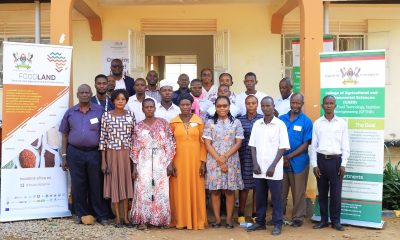

FoodLAND Project Research Dissemination: Nakaseke District Farmers Sensitized on Modern Agricultural Practices & Proper Nutrition
-
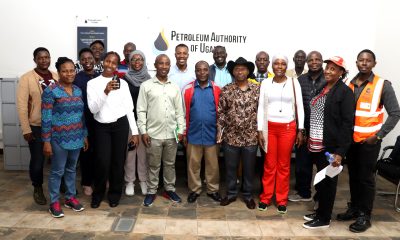

Mak Environmental Economists Explore Uganda’s Albertine Oil Fields: Identifying Research and Collaboration Opportunities
-
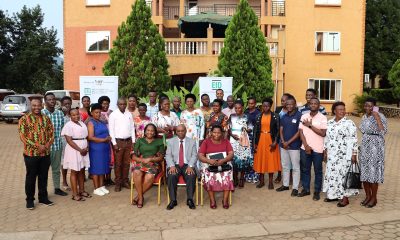

EfD Hosts Policy Dialogue on Energy Efficiency and Reduced Emissions: Hoima Residents Call for Expanded Access to Clean Energy
-
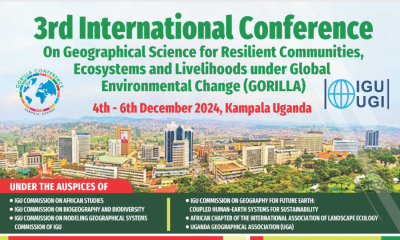

Call For Abstracts: 3rd International GORILLA Conference
-
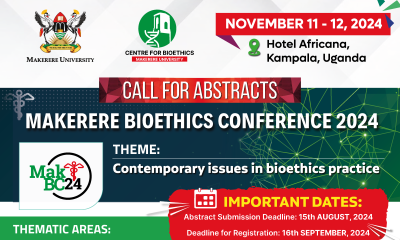

Call for Abstracts: Makerere Bioethics Conference 2024
-
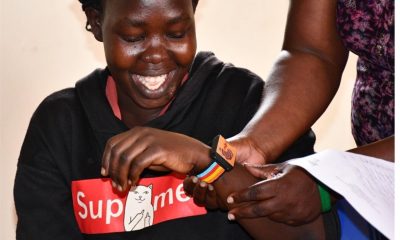

Mak Researchers Partner with Safe Bangle Technologies to Roll out a Real-Time Domestic Violence Reporting Bracelet
Agriculture & Environment
FoodLAND Project Research Dissemination: Nakaseke District Farmers Sensitized on Modern Agricultural Practices & Proper Nutrition
Published
4 days agoon
July 23, 2024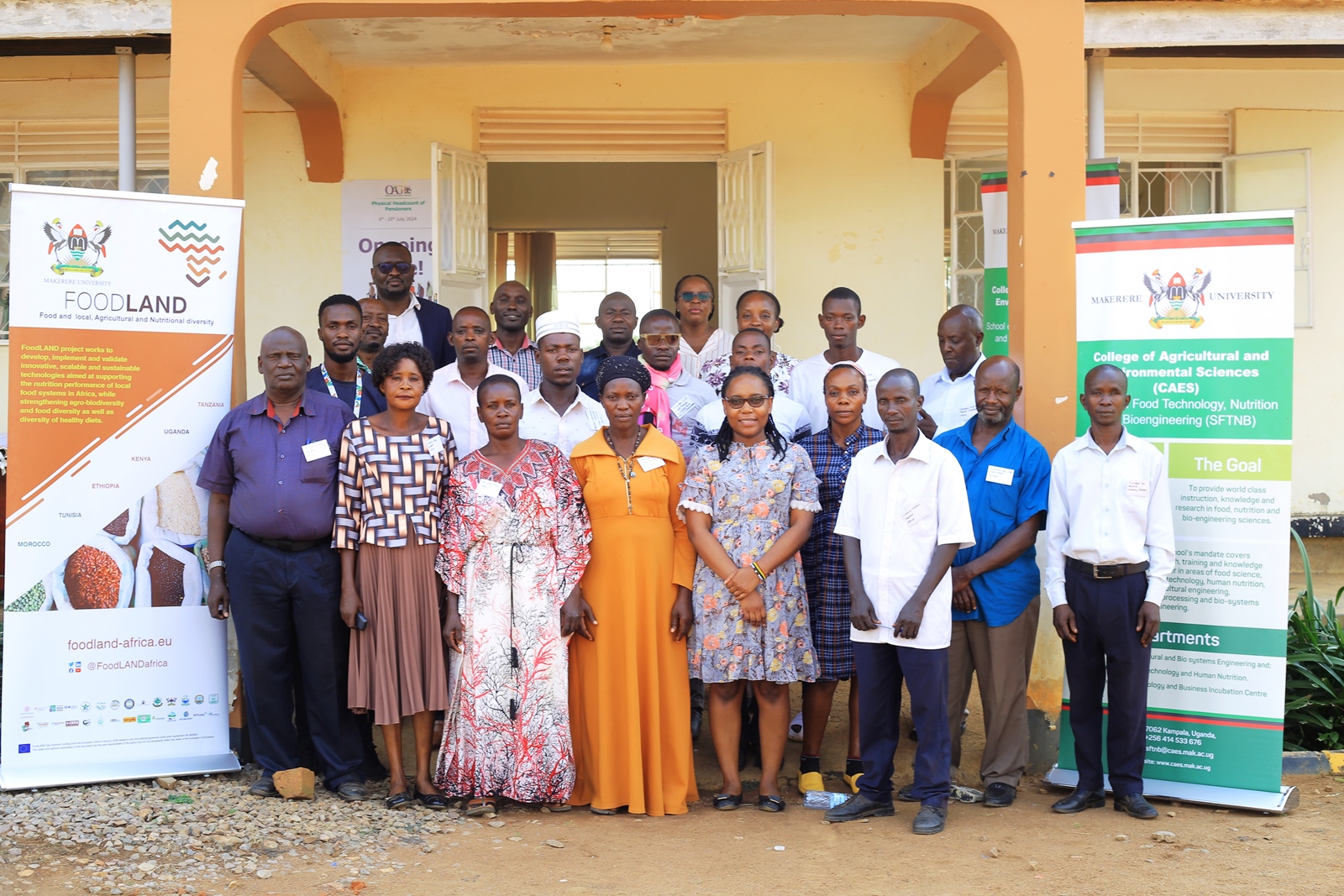
******Food and Local, Agricultural, and Nutritional Diversity (FoodLAND) project aims to develop, implement and validate innovative, scalable, and sustainable technologies aimed at supporting the nutrition performance of local food systems in Africa, while strengthening agro-biodiversity and food diversity as well as diversity of healthy diets.
Experiences of Nakaseke District farmers
Farmers in Nakaseke District are indebted for the support and training received from the FoodLAND Project. Although many had been engaged in the activity, they lacked knowledge and skills of modern farming. Connected to FoodLAND through VEDCO, a non-governmental and not for profit agricultural organization, the farmers have acquired skills on value addition, precision irrigation/fertigation, smart storage systems, gardening and hydroponics systems, biodegradable mulching, precision crop protection systems, precision harvesting systems and agro-ecological intensification practices.
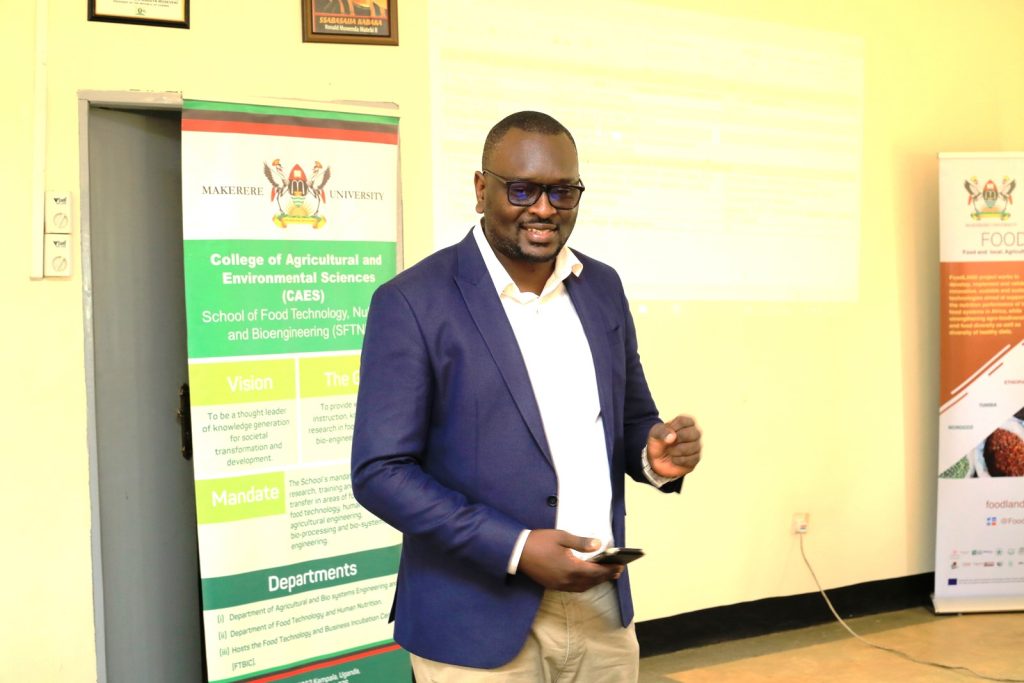
According to Ms. Nakawuba Sarah, a widow and tomato farmer in Kapeeka Sub County, Nakaseke District, the knowledge acquired has enabled her to expand, and gain more profits. “I extend my gratitude to FoodLAND and the funders of the project. The knowledge acquired over time has enabled me to expand my farm and earn more money. Due to ignorance, we used to be exploited – people would buy our products cheaply because we lacked knowledge of preservation. The training on value addition has helped us learn how to preserve our products and we are now benefiting more from them. At the time my husband died, we had just a small house built on his father’s land. I am happy that with the support received from VEDCO and FoodLAND, I have bought a plot of land, built a house, and I am able to pay school fees for my children. I once again thank VEDCO and the FoodLAND. Although the FoodLAND project is ending soon, I request that they do not leave us. They should continue training us so that we further improve our skills.”
Mr. Lubowa Samuel Sunday, also a farmer in Kapeeka Sub County, Nakaseke District is equally grateful. Through FoodLAND, several farmers in Nakaseke District have acquired knowledge of climate smart agriculture. “Farming in the dry season is no longer a challenge. Our harvest has increased and we are now earning more. However we still face a number of challenges including the high cost of fertilizers and pesticides. We appeal to the project team to conduct more research on natural remedies for the challenges we are experiencing.”
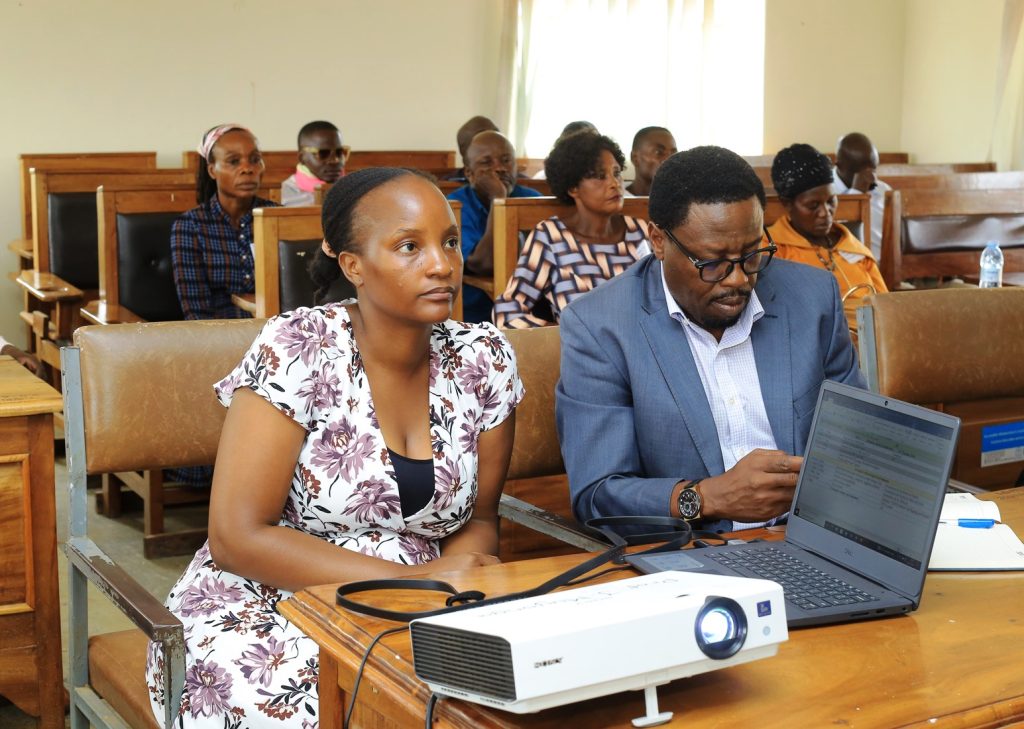
Ms. Nankya Jane, a coffee and banana farmer Semuto Sub County, Nakaseke District, the irrigation skills acquired through the project have greatly improved her farm. “The place where I do my farming was so dry, and this, in many cases, affected my yields. Through VEDCO, we were taken to the Makerere University Agricultural Research Institute Kabanyolo (MUARIK) where we acquired skills on proper irrigation and value addition using technologies developed by the FoodLAND Project. If I had acquired these skills when I started 7 years ago, I would be very far. My appeal is that you continue offering training to us. There is a lot more that we need to learn.”
About the FoodLAND project
Launched in 2020, the main objective of the FoodLAND project was to develop, implement and validate innovative, scalable and sustainable technologies aimed at supporting the nutrition performance of local food systems in Africa, while strengthening agro-biodiversity and food diversity as well as diversity of healthy diets.
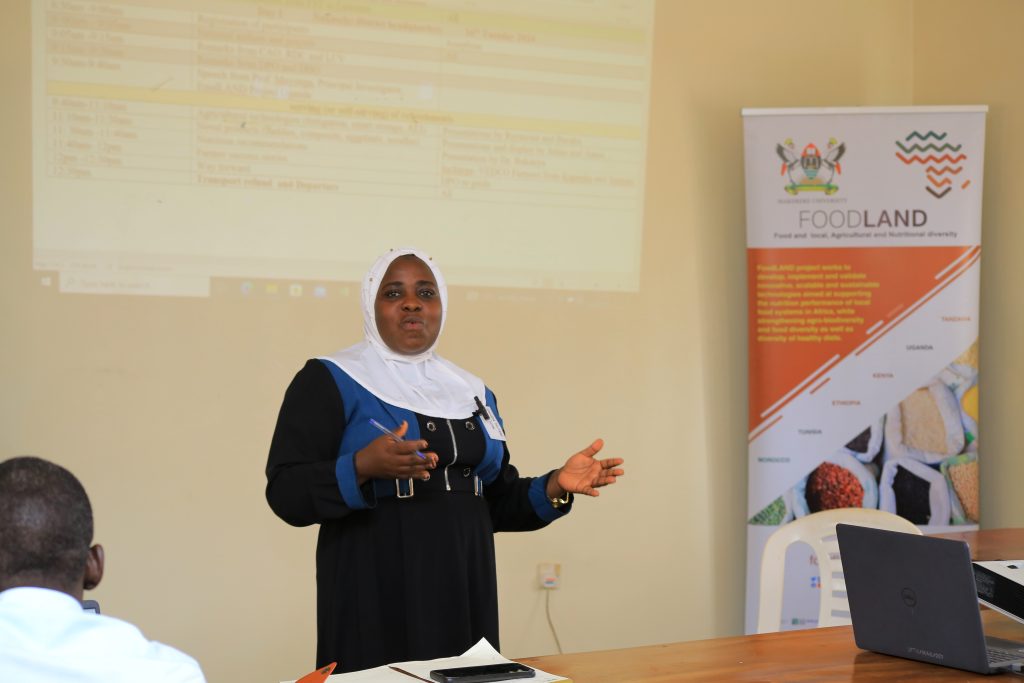
Funded to the tune of 7 million euro by the European Commission within the Horizon 2020 programme, and led by Alma Mater Studiorum – University of Bologna (Italy), the project committed to developing a range of innovations for local agriculture and aquaculture development, as well as to nudging consumers towards healthier eating behaviour in six African countries: Morocco, Tunisia, Ethiopia, Kenya, Uganda and Tanzania. The project specifically aimed to empower smallholder farmers and food operators, foster nutrition responsive and sustainable agro-biodiversity, reinforce the productivity and resilience of food supply chains, and create new market opportunities at both the local and global scales, thereby encouraging the flourishing of rural communities. The project was envisaged to create a network of 14 local Food Hubs—paired with 14 separate cities in these countries—that would mobilise relevant actors in rural, urban and peri-urban communities and serve as injection points for testing and introducing the innovations. The 28 partners that comprise the FoodLAND consortium (18 of them African institutions while the other 10 are European) were expected to work together to develop, implement and validate 12 technological innovations; which include organizational and technological innovations for both vegetable and fish farming and food processing systems, together with 17 novel local food products, ranging from fresh, dried and processed vegetables and fish to composite flours and therapeutic foods.
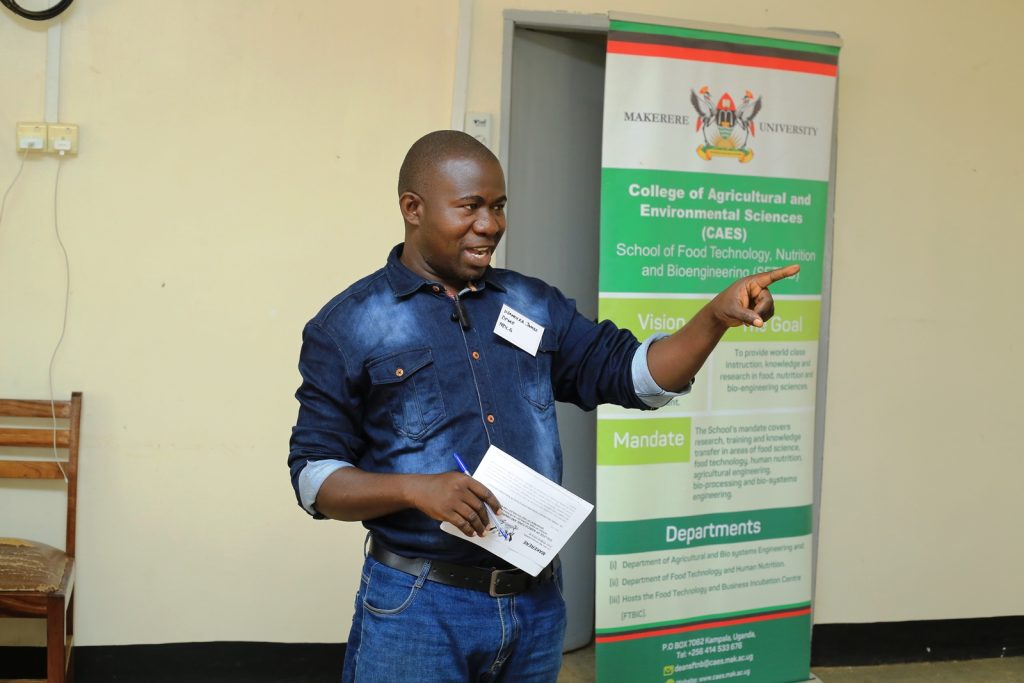
In Uganda, the project was implemented in 6 districts namely; Masaka, Nakaseke, Kamuli, Lwengo, Mukono and Wakiso, and was led by Prof. John Muyonga from the Department of Food Technology and Nutrition, College of Agriculture and Environmental Sciences (CAES), Makerere University. Other members on the project were: Prof. Johnny Mugisha from CAES; Dr. Cassius Aruho, Dr. Puline Nakyewa, Dr. Margaret Masette, Dr. Getrude Atukunda and Dr. Justus Rutaisire from NARO; Mr. Henry Nsereko from VEDCO; and Prof. Dorothy Nakimbugwe from Nutreal.
To date, the project team in Uganda has registered a number of achievements including;
- New nutrient enhanced food products – Noodles containing orange fleshed sweet potatoes and biofortified beans; instant flours containing orange fleshed sweet potatoes, biofortified beans and grain amaranth; and dry eggplant. Arrangements are in place for commercialization of the technologies by SMEs.
- Establishment of infrastructure at MUARIK for research and training on fertigation (irrigation that supplies water together with manure) and precision irrigation.
- Development of technology for smart cold storage of perishable foods such as fruits and vegetables. The technology allows for remote monitoring of temperature and relative humidity.
- Development of technology for rodent control in stores. This technology has been shown to be effective in preventing of rodent damage to food in stores.
- Promotion of agro-ecological intensification – Applying ecological principles to ensure sustainable agricultural production.
- Testing application of bio-based packaging of food
- Training of 100 farmers in different production technologies.
- Training of 3 M.Sc.
- Developing of nutrition guidelines for adults and the elderly.
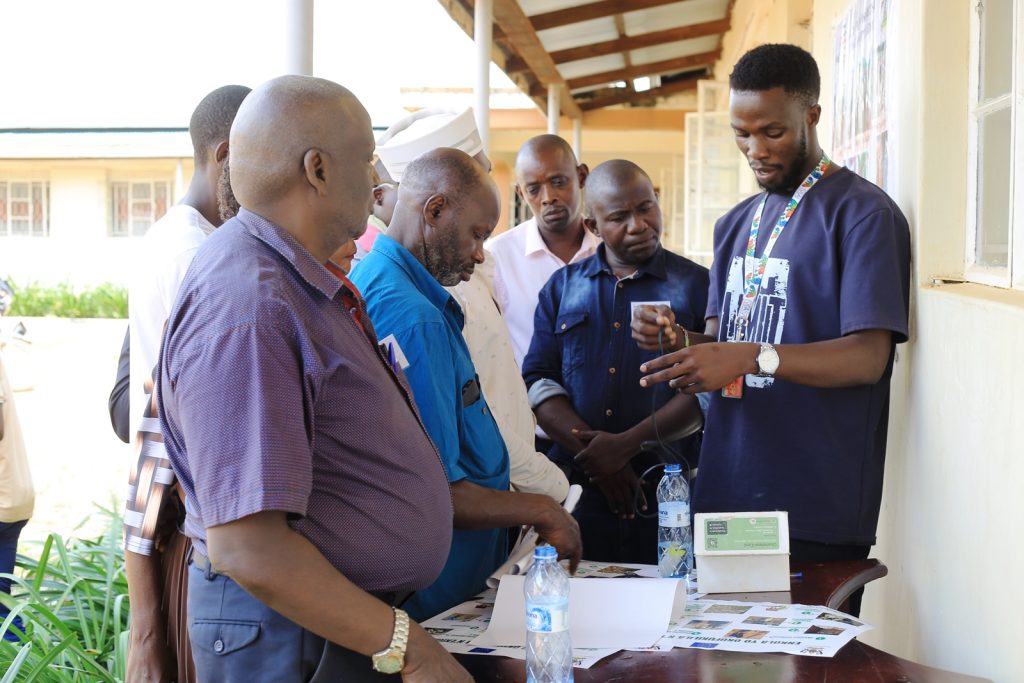
Dissemination of the project findings and achievements to farmers and district leaders in Nakaseke
On 16th July 2024, the project team held a dissemination workshop for Nakaseke District leaders and farmers to sensitize them on different aspects including the research findings and recommendations for improved farming practices. Coordinated by Ms. Josephine Kisakye, and conducted at Butalangu District Headquarters, the workshop was attended by representatives of farmer groups in Nakaseke as well as the district officials, including the CAO, DHO, DPMO and RDC. On behalf of the Project Coordinator, Dr Richard Bukenya, also a member of staff in the Department of Food Technology and Nutrition briefed the farmers on the findings of the project, highlighting the project objectives and progress made thus far, including the technologies, novel raw materials, ingredients and food products developed. Under the project, a number of technologies for smart farming have been developed and are being tested. These include: Digital tools for precision agriculture, farming management systems like the rodent control system as part of smart storage systems, and the food processing systems like the solar drier.
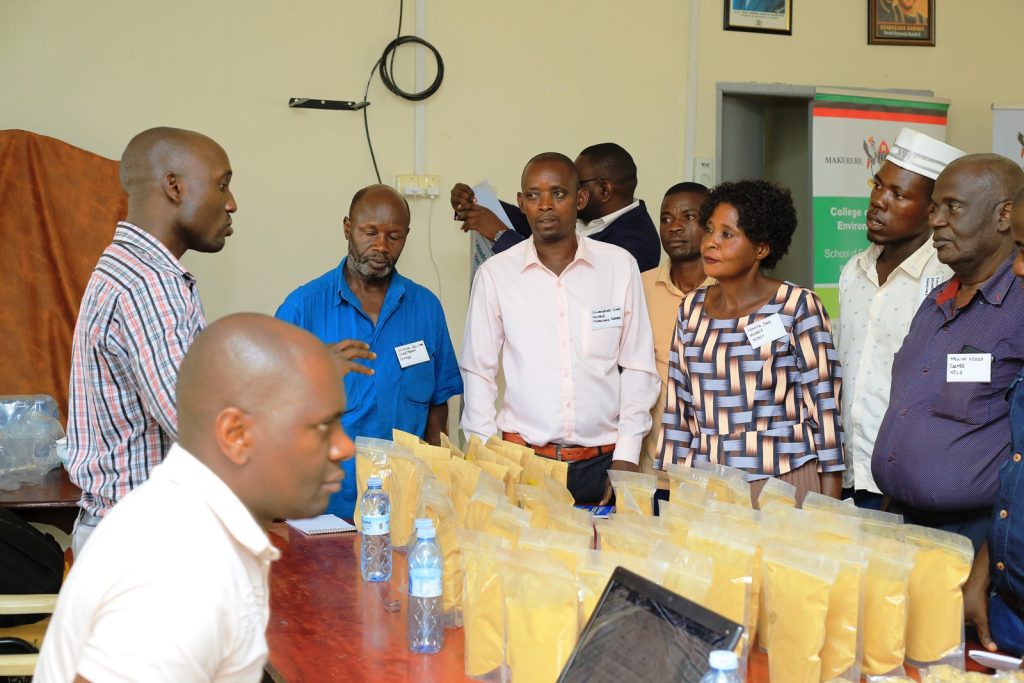
During the workshop, Mr. Barak Price, a student on the project sensitized participants on the rodent control system. He also trained the farmers on precision irrigation/fertigation. The farmers were also taken through the processes of value addition. Ms. Josephine Kisakye, a researcher on the project discussed the nutrition recommendations developed by the project. In the course of the project activities, it was noted that diets in Uganda are mainly composed of starchy staples, especially cereals, roots, tubers and bananas, with legumes constituting the main protein source. Intake of micronutrient-rich foods is low, despite various interventions to promote consumption of fruits, and vegetables. Ugandan adult and elderly population in both rural and urban areas were found to be at risk of under-nutrition and micro-nutrient deficiencies. Nutritional recommendations included: i) Daily consumption of locally available fruits and vegetables, whole starchy staples, and protein-rich foods; including beans, peas, nuts, fish, eggs, and meat; ii) Limiting the consumption of fried foods, salt, alcohol, and sweetened beverages; iii) Hydrate with fluids, preferably water; Regular engagement in moderate-intensity physical activity like brisk walking, digging, swimming, aerobics, and cycling; vi) Undertaking medical examination at intervals of no longer than 6 months to facilitate timely detection and treatment of ailments like diabetes, hypertension, high plasma cholesterol and cancers.
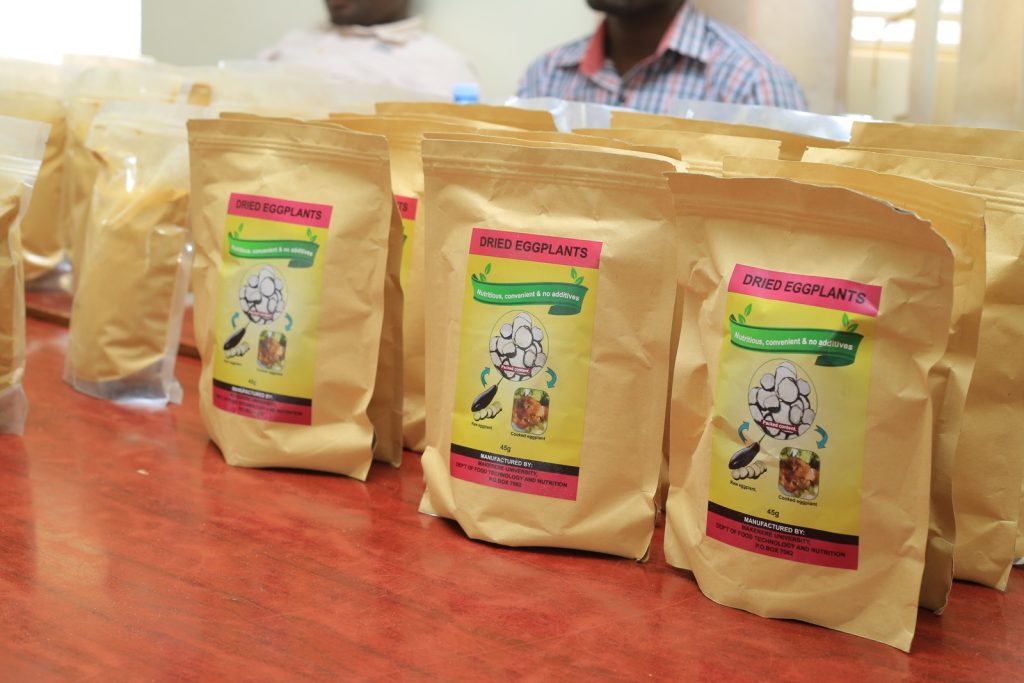
Appreciation by the District officials
Butalangu Town Clerk, Ms. Rashida Mutebi on behalf of the Chief Administrative Officer appreciated the project for reaching out and working with the local communities to improve their livelihoods. “The trainings on value addition will go a long way in saving our farmers losses,” she noted, calling for resilience and cooperation amongst the farmers. “It is important that you work together. Always share best practices if you are to improve yourselves and gain more from farming. I also implore you to always keep records of your farming activities.”
In his remarks, Nakaseke District Health Officer, Dr Alija Simon noted that the challenge of non-communicable diseases was on the raise due to poor feeding habits. He expressed gratitude to the project for incorporating the important aspect of nutrition in its research.
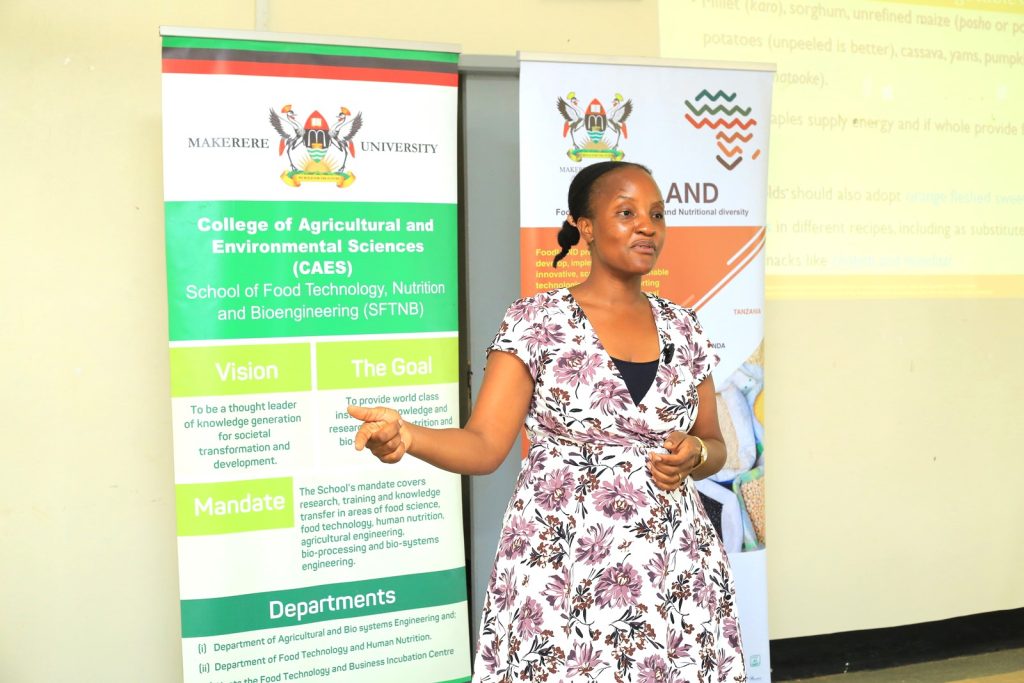
DPMO Wandera James appreciated the Government of Uganda for investing in farming. He also appreciated the project team for the trainings offered to the farmers in the district, noting that value addition was a key area of focus in the Parish Development Model. “Nakaseke is now becoming a food hub. I thank Makerere University for working with the communities. Initially, research was done but stopped in the shelves of the University. We are happy that you are now working with the communities to identify solutions to the challenges undermining agriculture. Research should be conducted for development.”
Addressing participants, the Assistant RDC, Nakaseke District, Mr. Muhoozi Michael appreciated Makerere University, specifically the FoodLAND Project, calling for more innervations to support farmers in the district out of poverty. He implored the farmer groups to form a cooperative, noting that the latter forms a better platform for soliciting support.
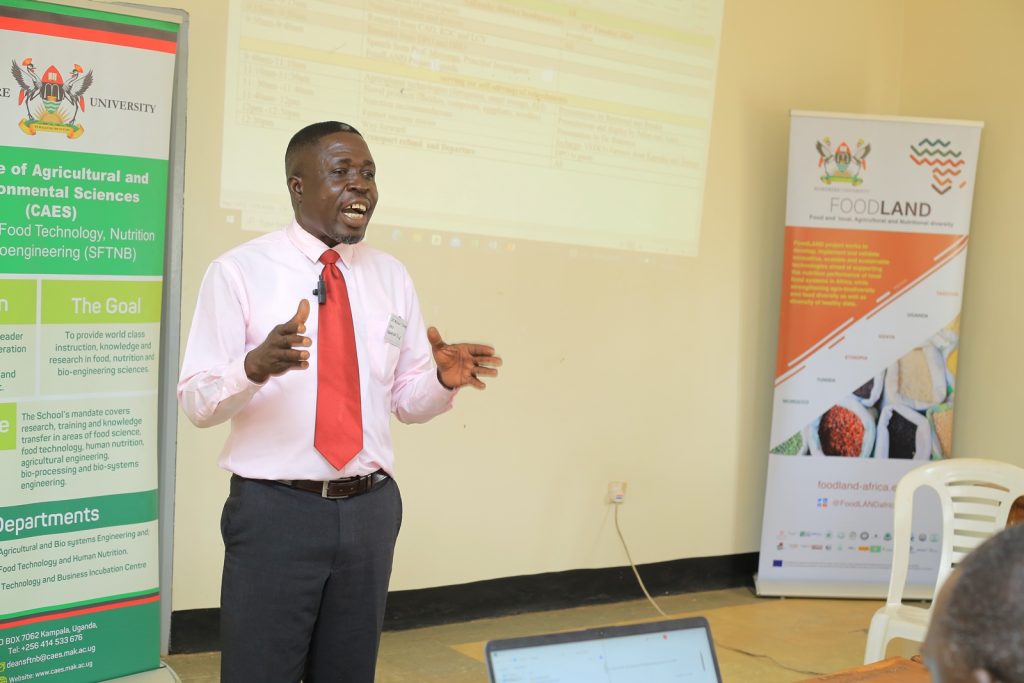
A similar dissemination exercise was conducted in Kamuli District in Eastern Uganda.
More photos from the FoodLAND project Nakaseke Dissemination
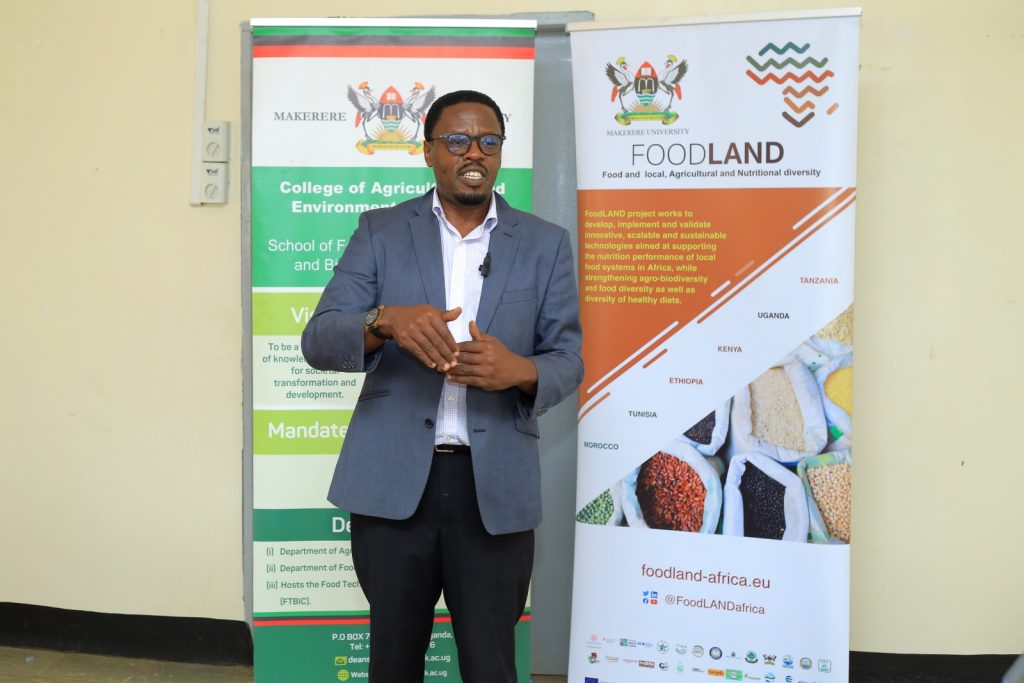
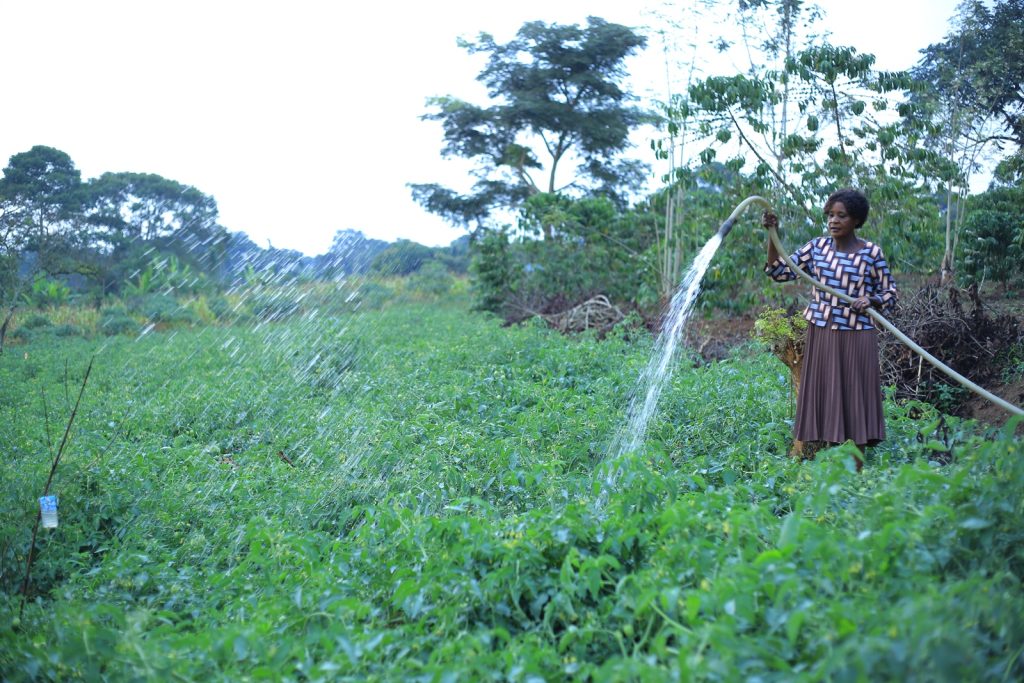
Agriculture & Environment
Mak, Oregon State University Sign Cooperation Agreement
Published
1 week agoon
July 19, 2024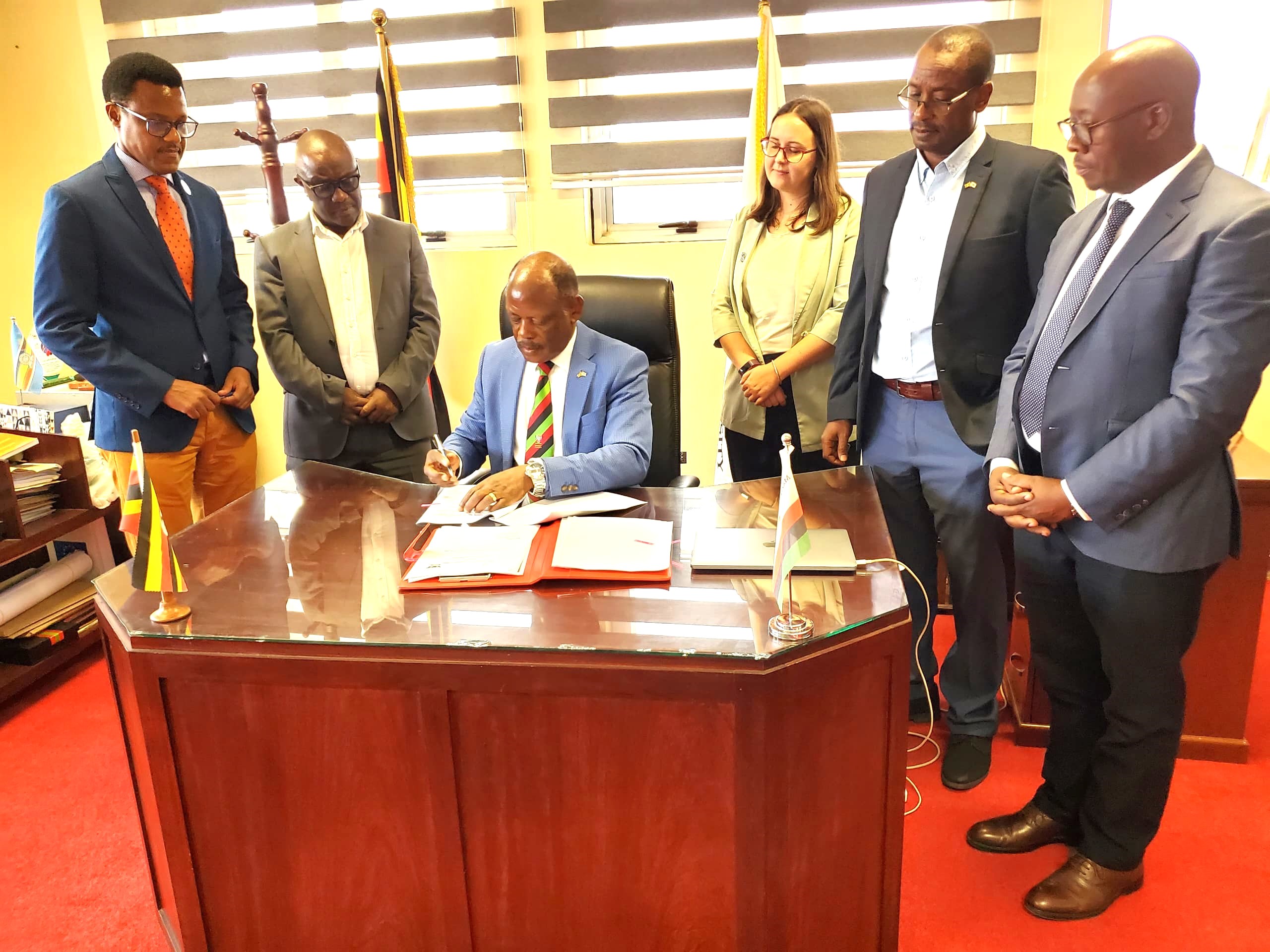
Makerere University Vice Chancellor, Prof. Barnabas Nawangwe on 19th July 2024 endorsed the Memorandum of Understanding between Makerere University and Oregon State University to collaborate in different aspects of academics. The MoU signing ceremony was witnessed by members of staff from the College of Agricultural and Environmental Sciences (CAES) namely; Dr Revocatus Twinomuhangi, Dean, School of Forestry, Environmental, and Geographical Sciences; Dr Lawrence Orikiriza Head, Department of Forestry, Biodiversity and Tourism; and Prof. Jim Ayorekire from the same department. Oregon State University was represented by Dr Ian E. Munanura, an Associate Professor in the Department of Forest Ecosystems and Society, College of Forestry, and Ms. Racheal Fahrenbach, Manager International Programs at the College of Forestry. At Makerere, the MoU will be implemented by the Department of Forestry, Biodiversity and Tourism under the leadership of Prof. Jim Ayorekire. At Oregon State University, it will be implemented by the College of Forestry.
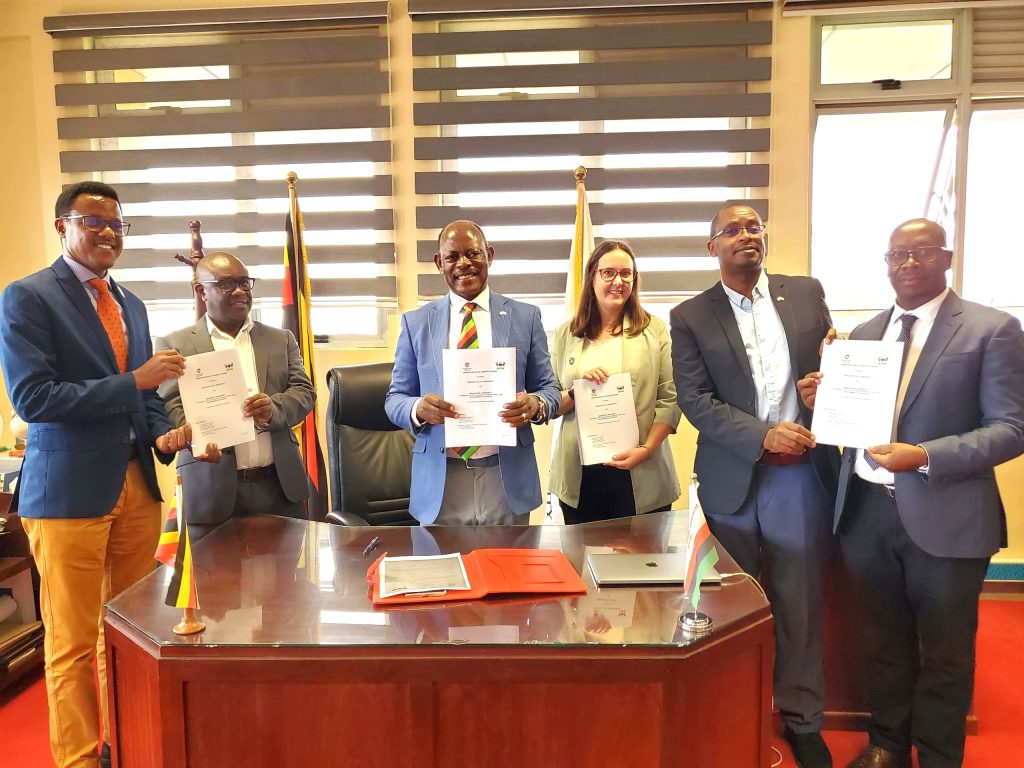
Under the MoU, the two institutions have agree to mutually promote the following programmes, based on their respective academic and educational needs; i) Exchange of scholars and faculty staff, ii) Exchange of undergraduate and graduate students for research and study, iii) Exchange of academic information and materials, iv) Joint research activities and publications, v) Participation in conferences and academic meetings vi) Joint running of short-term academic programs, vii) Resource mobilization in respect of areas of mutual interest, and any other areas which may promote their mutual interests.
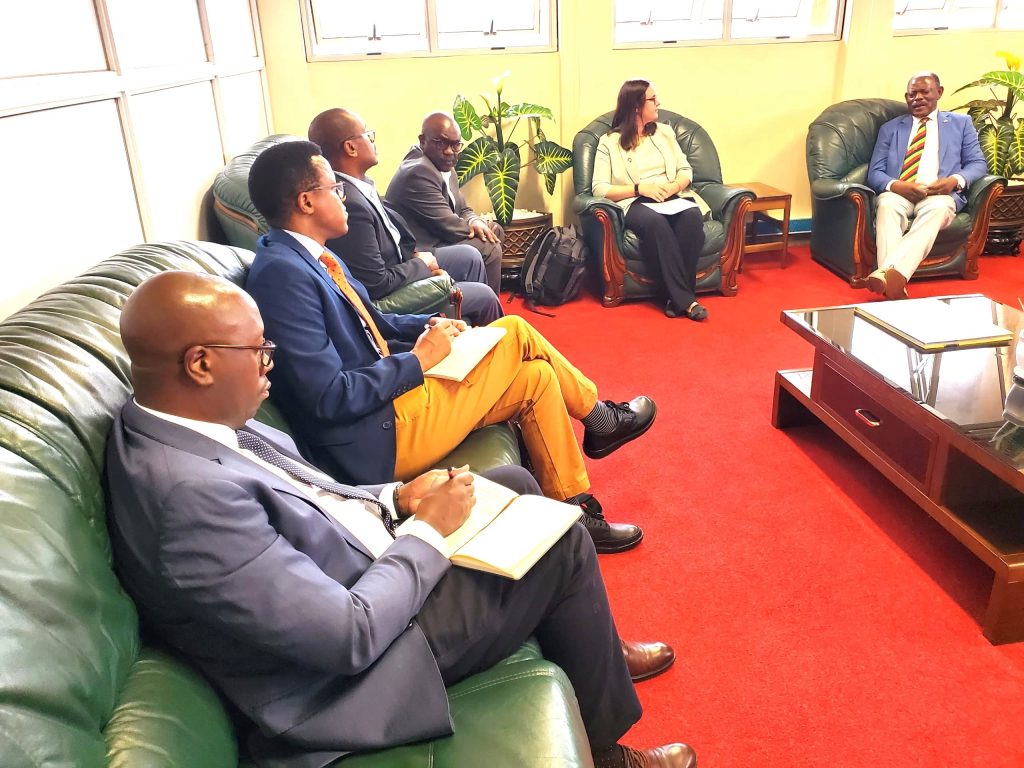
During the ceremony, the Vice Chancellor noted that programmes agreed on in the MoU were in line with the University’s Strategic Plan, and would greatly advance Makerere’s aspiration to become a research-led University. “As we move towards becoming a research-led University, we aim to contribute to the realization of Agenda 2063 which seeks to have Africa produce at least one million PhDs as one of the measures to eradicate poverty from the continent. Partnerships like this will help us achieve our target, by building our supervision capacity,” he explained, pledging support towards the implementation of the MoU.
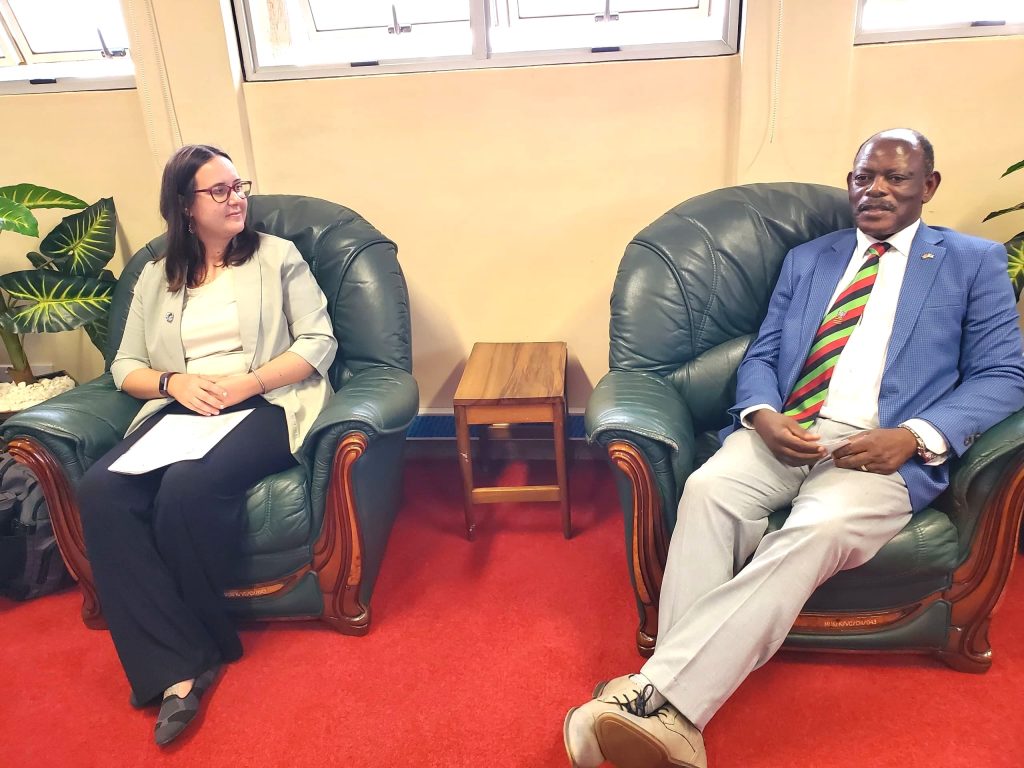
Dr Ian Munanura on behalf of Oregon State University expressed gratitude to work with Makerere, noting that the partnership would strengthen research capacity of the two institutions and support the mentorship of the next generation of scientists to deal with the challenges facing humanity including climate change and unemployment.
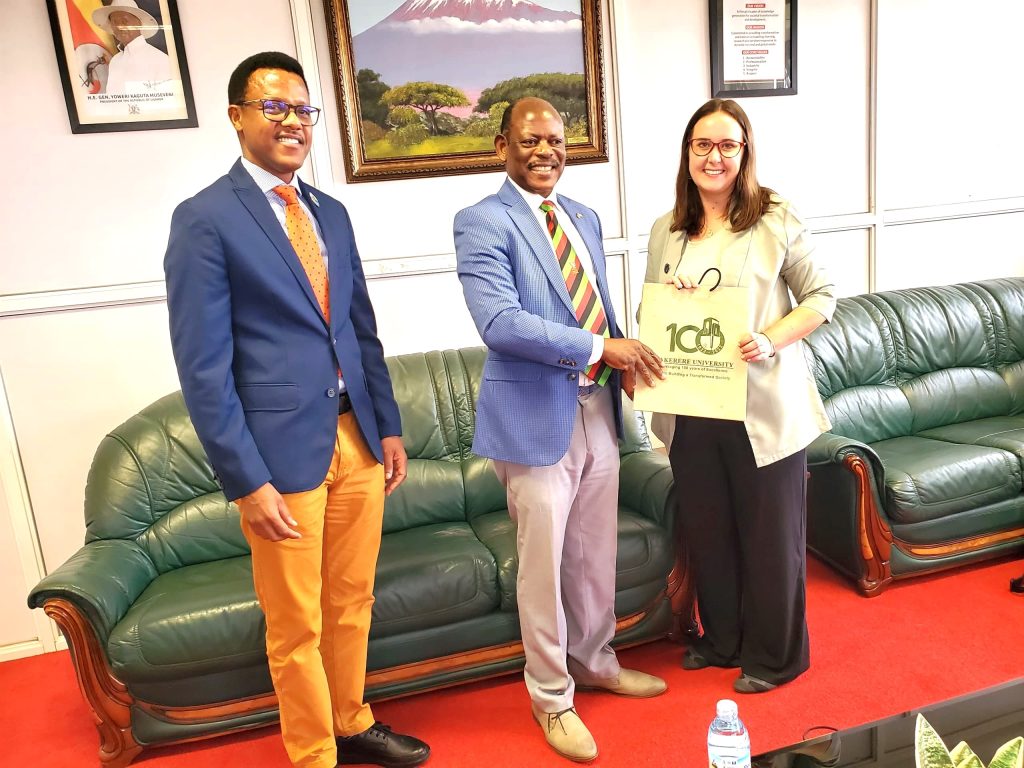
About the Department of Forestry, Biodiversity and Tourism at Makerere
The Department of Forestry, Biodiversity, and Tourism under the School of Forestry, Environmental, and Geographical Sciences at the College of Agricultural and Environmental Sciences, Makerere University offers programmes namely; Bachelor of Science in Conservation Forestry and Products Technology; Bachelor of Social and Entrepreneurial Forestry; and Master of Science in Agroforestry. Specific courses offered under those programmes include; Agroforestry Systems, Practices And Technologies; Drylands Agroforestry; Advanced Community Forestry; Gender Issues In Forestry; Advanced Biodiversity Conservation; Ecophysiology and Agronomy; Forestry For Rural Development; Natural Resource Management; Tropical Forest Ecology And Management; Forestry Business Management; Entrepreneurship In Forestry; Forestry And Food Security; Indigenous Knowledge in Resource Management; Biomass Energy Production and Conservation; Land Use Planning and Watershed Management; Forest Planning and Development; Forest Ecosystems and Livelihoods; and Forest Planning and Development. The Department also conducts a wide range of research in the fields highlighted above. The training offered exposes graduates from the department to a wide range of employment opportunities.
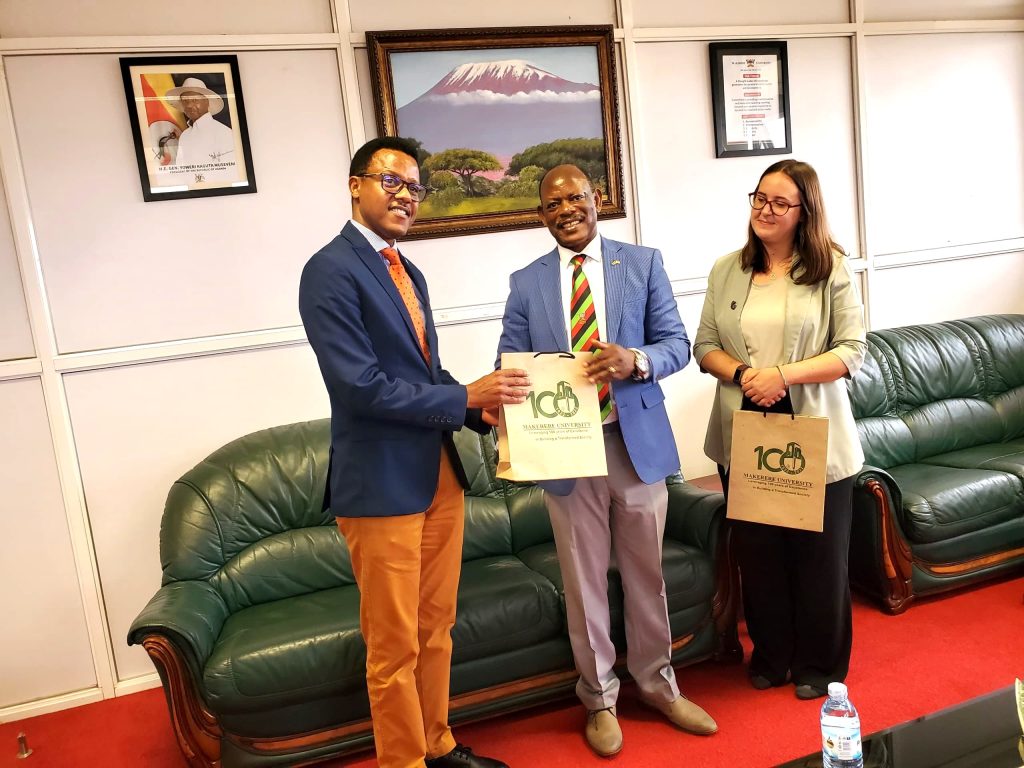
About the College of Forestry, Oregon State University
The Oregon State University College of Forestry is an internationally recognized leader that is transforming education, research and policy for managing and sustaining working forest ecosystems in the 21st century. The College offers a world-class education that provides a wide variety of opportunities following graduation. Academic excellence is the hallmark of the College of Forestry programs at Oregon State University. Ranked as one of the premier forestry schools in the world, students find a variety of programs that offer broad education, rigorous depth and professional focus. The College is known for its collaborative research approach to advance knowledge and bring solutions to issues facing forest landscapes and ecosystems. It takes pride in creating new and innovative approaches to help partners enhance people’s lives while improving the health of lands, businesses and vital ecosystems.
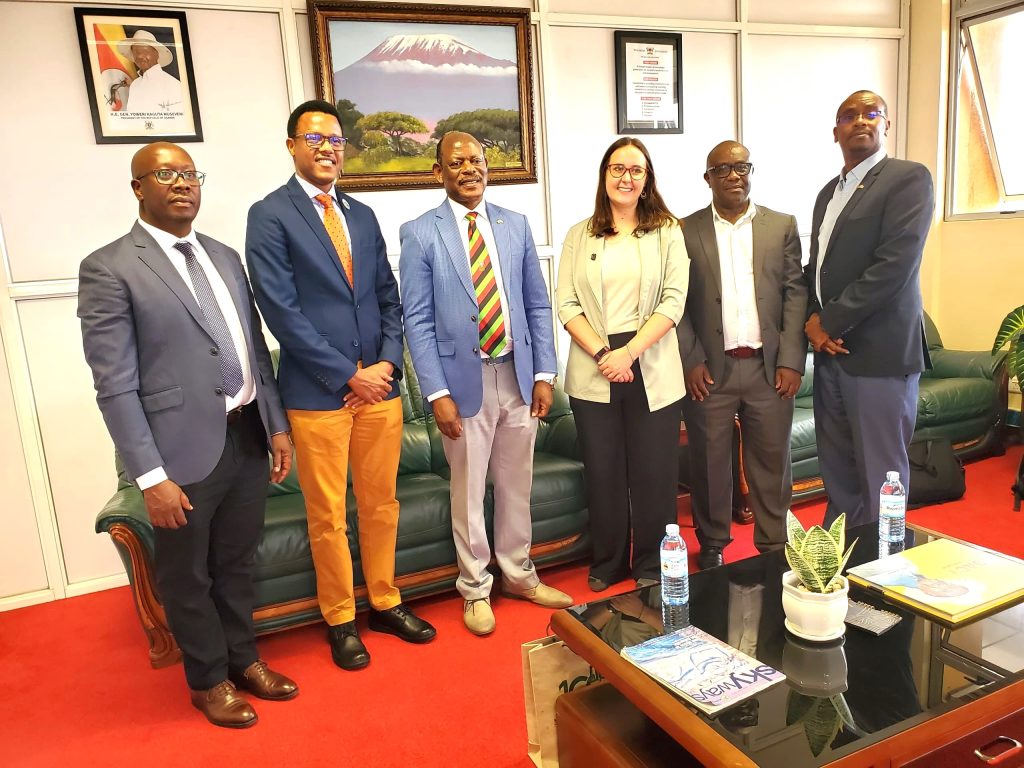
Agriculture & Environment
Call For Abstracts: 3rd International GORILLA Conference
Published
1 week agoon
July 19, 2024By
Mak Editor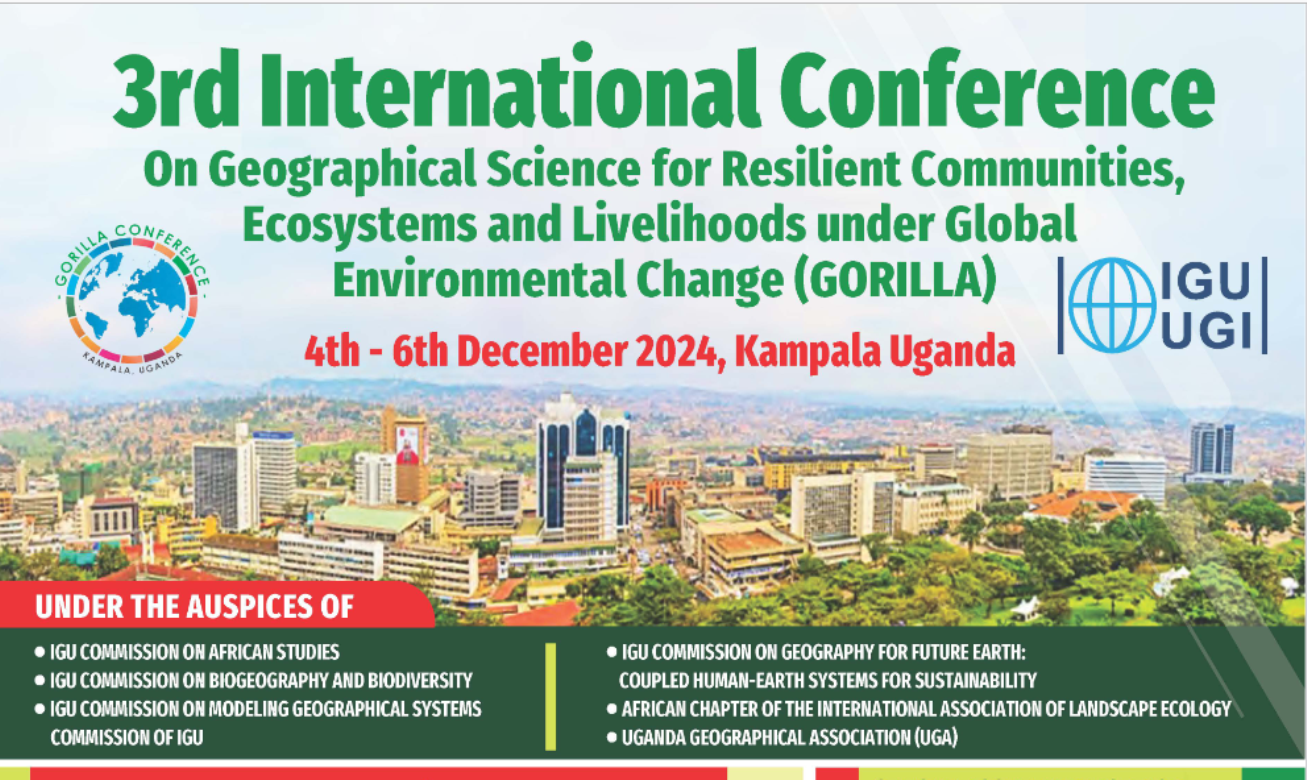
The 3rd International Conference on Geographical Science for Resilient Communities, Ecosystems and Livelihoods under Global Environmental Change (GORILLA) aims to take stock of emerging geographic oriented science and knowledge for advancing the 2030 Agenda for Sustainable Development. The GORILLA Conference seeks to harness geographic science to advance knowledge and foster positive change in understanding and addressing sustainable development challenges and opportunities at local, regional, national, and global scales. The specific objectives are to;
- Facilitate exchange of contemporary resilience building knowledge and innovations in a transdisciplinary manner.
- Enhance dialogue to bridge the science-policy-practice interface to address deficits that are limiting the resolution of pressing resilience challenges and shape policy agendas.
- Enhance capacities and capabilities of early career scientists through mentorship and dedicated training focused on the 2030 Agenda for Sustainable Development.
- Increase knowledge and scientific outputs from Sub-Saharan Africa by facilitating special issue publications
- Provide an opportunity for increased networking and beneficial partnerships from attendees with varied backgrounds and professional affiliations to address complex sustainable development challenges.
Important dates
- Conference Dates: 4th – 6th December 2024
- Deadline for Submission of Abstracts: 30th August 2024
- Latest Notification of Abstract Acceptance: 31st October 2024
Conference Topics
(a) Geographies of Climate Change, Climate Justice and Just Transition: Spaces and Patterns
(b) Biodiversity Informatics, Sustainable Ecosystems, Landscapes and People
(c) Green Growth and Transitions to Land Degradation Neutrality and Net Zero
(d) Water Governance and Watershed Resilience for Sustainable livelihoods
(e) Interconnected Geohazards and Disasters in a Changing World
(f) Polycrisis: Migration, Displacement, Conflict and Humanitarianism
(g) The changing Geography of Agrifood Systems
(h) Nature Based Solutions for Inclusive and Equitable Development
(i) Emerging and Novel Technologies for Societal Resilience
(j) Sustainable Cities and Urban Systems in SSA
(k) Geographies of Energy and Energy Transitions
(l) Environment and Health
Submission of Abstract
A 250-word abstract on the topics of the conference is required for those intending to make presentations. Both oral and poster presentations in the conference will be accepted. In addition, specific proposals for sessions may also be accepted. Abstracts will be submitted online at https://gorilla.mak.ac.ug.
Please see downloads for Conference Materials
Trending
-
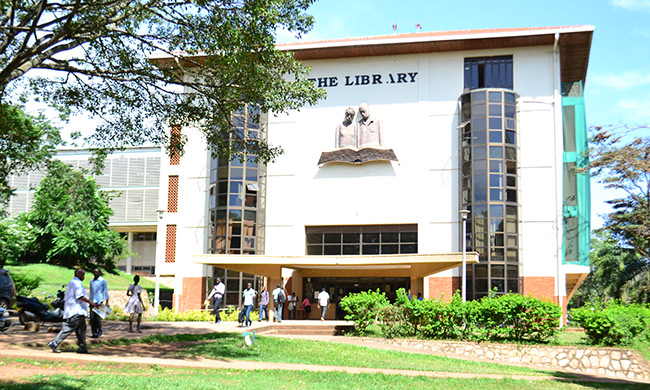
 General2 weeks ago
General2 weeks agoDiploma/Degree Holders Admission Lists 2024/25
-
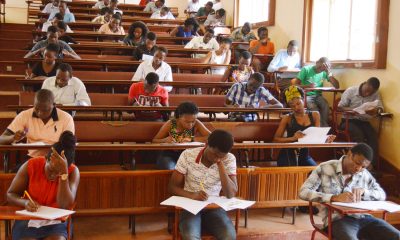
 General1 week ago
General1 week agoAdvert: Mature Age Entry Scheme – Private Sponsorship 2024/2025
-
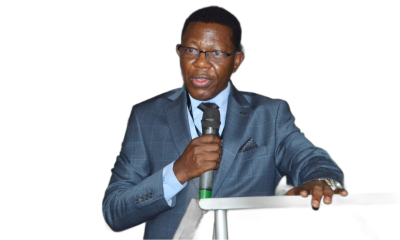
 General5 days ago
General5 days agoProf. Buyinza Mukadasi Appointed Acting DVC Academic Affairs
-
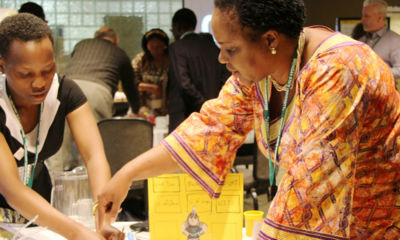
 General2 weeks ago
General2 weeks agoAfrican Futures Research Leadership Program: Cohort 5 – Call for Scholars
-
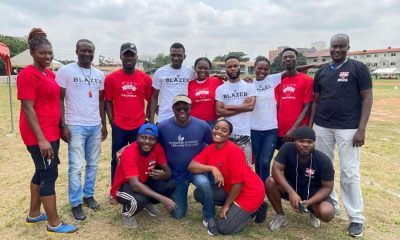
 General2 weeks ago
General2 weeks agoNow Open: CADFP Project Requests
